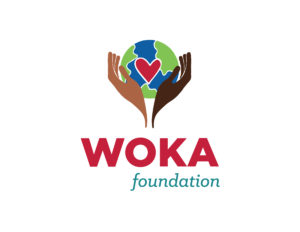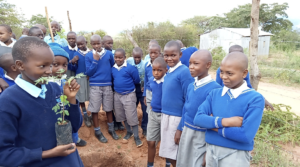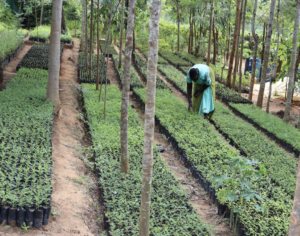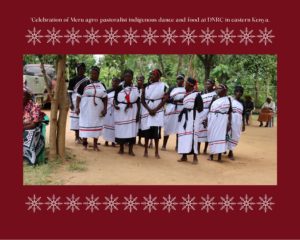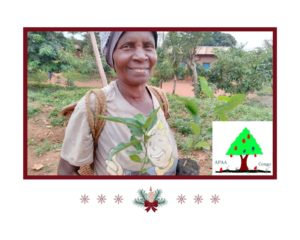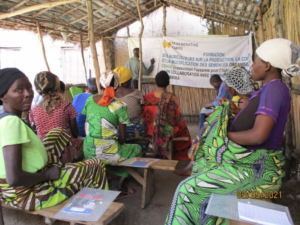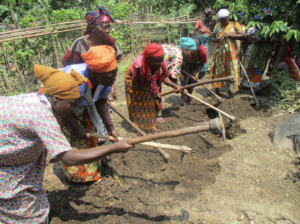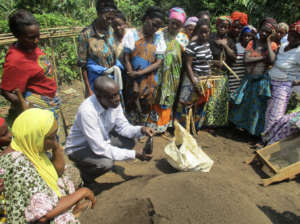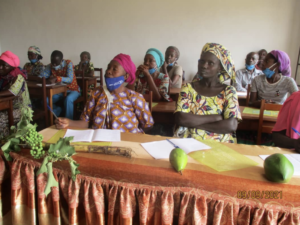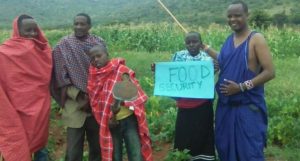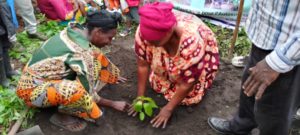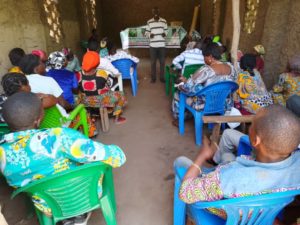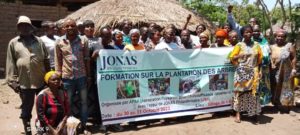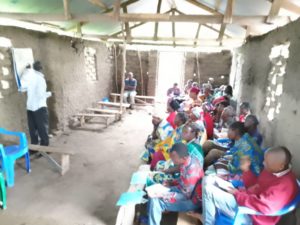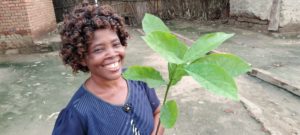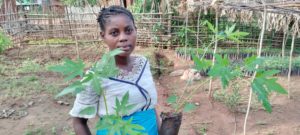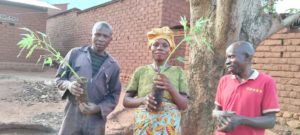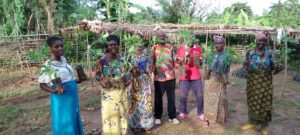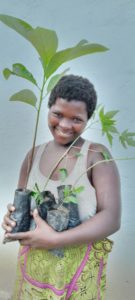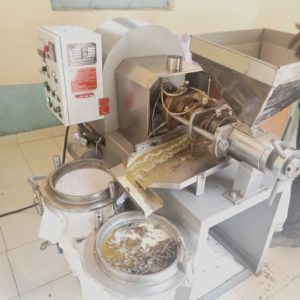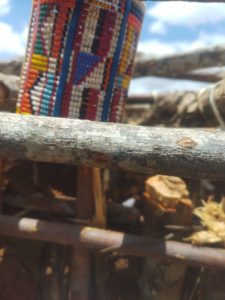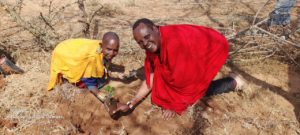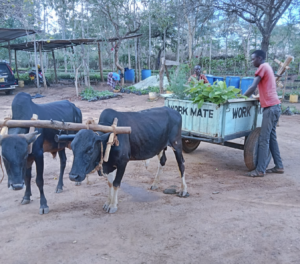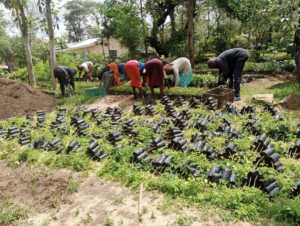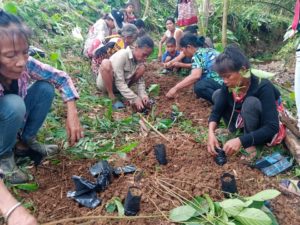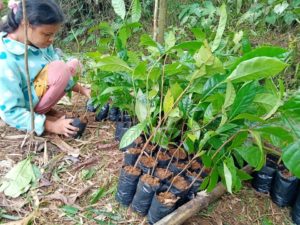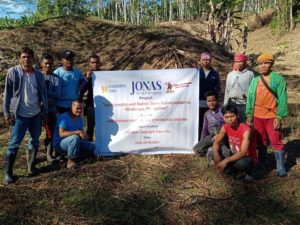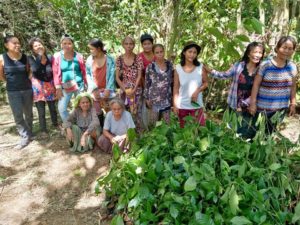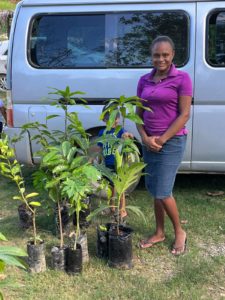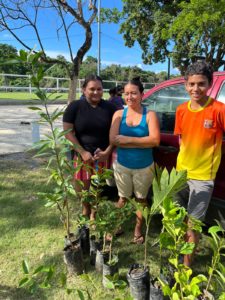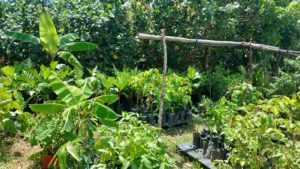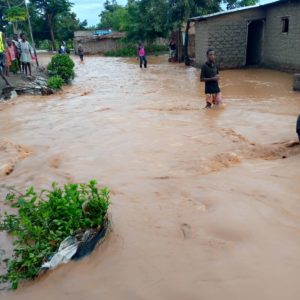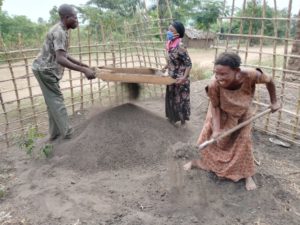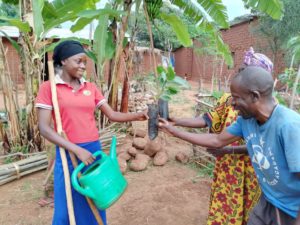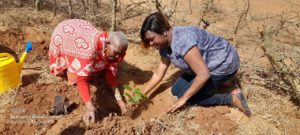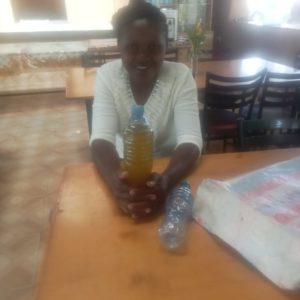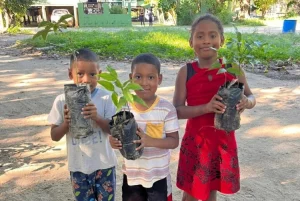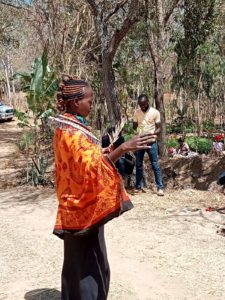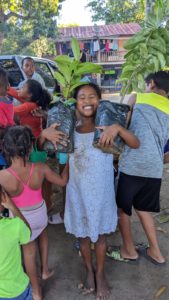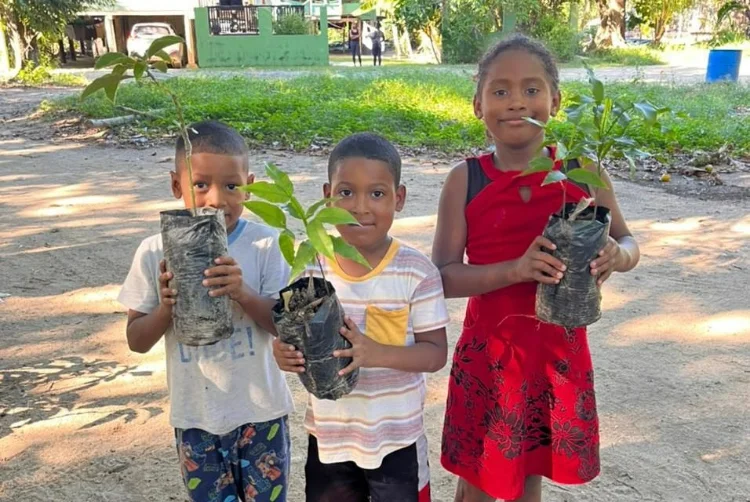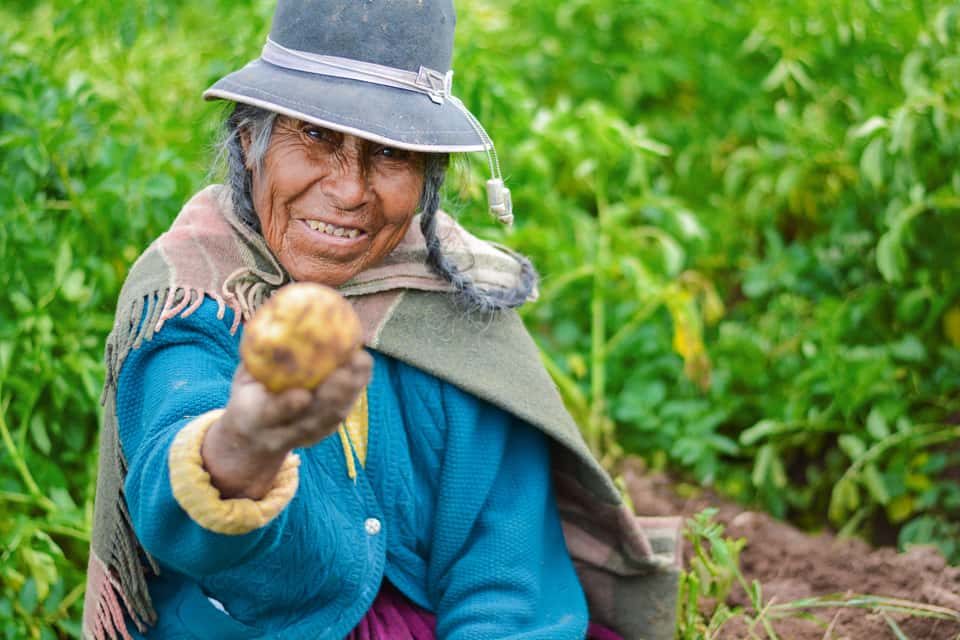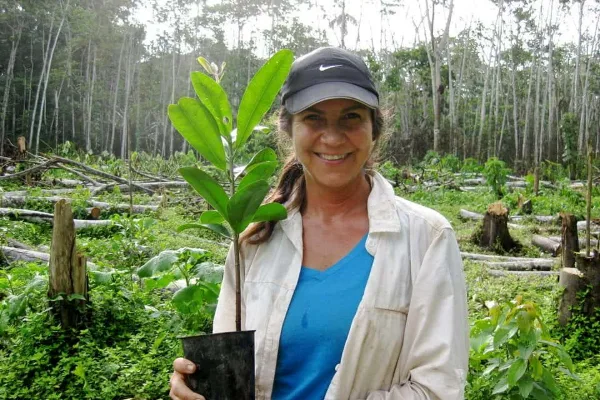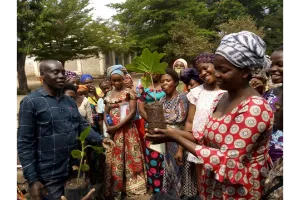We help Regenerate the Earth to End Child Hunger—For Good
Every day, millions of children go to bed hungry. At Regenerative Farms, we’re changing that by empowering women farmers to restore their land and feed their communities by planting Superfood Trees.
(GIVE – Help End Hunger, Empower Women & Fight Climate Change)
Why Your Help Matters
- Empower Women: Women produce 80% of the food consumed by the rural poor across Africa, Asia and Latin America. With your support we can equip them to feed their families and communities.
- Sustainable Impact: Our programs restore degraded land, ensuring long-term food security and resilience against the rise in severe weather.
- Scalable Solutions: With your help, we are positioned to serve over 1 Million families. Together, we can expand our impact even further. (GIVE – Help End Hunger, Empower Women & Fight Climate Change)
Take Action Now
💖 Donate
Your gift provides seeds, tools, and training that will empower women farmers, directly combating child hunger.
Just $1 can plant a Superfood tree that will save a child’s life.
🤝 Volunteer
Join our mission by volunteering your time and skills to support our programs.
📣 Share
Spread the word about our work to your friends, family, and colleagues. Every share brings us closer to ending child hunger.
Together, we can create a world where no child goes hungry. Join us in making a lasting difference.
Learn More
We help women plant resilient forests full of nutritious superfood tree crops selected to better withstand extreme weather and that offer them year-round easy access to the critical nutrients essential for good health. 1 in 3 children and pregnant women in many parts of the world suffer from malnutrition. Help us change that.
Regeneration Hubs hard at work
Eastern Kentucky, USDA RBDG 2025
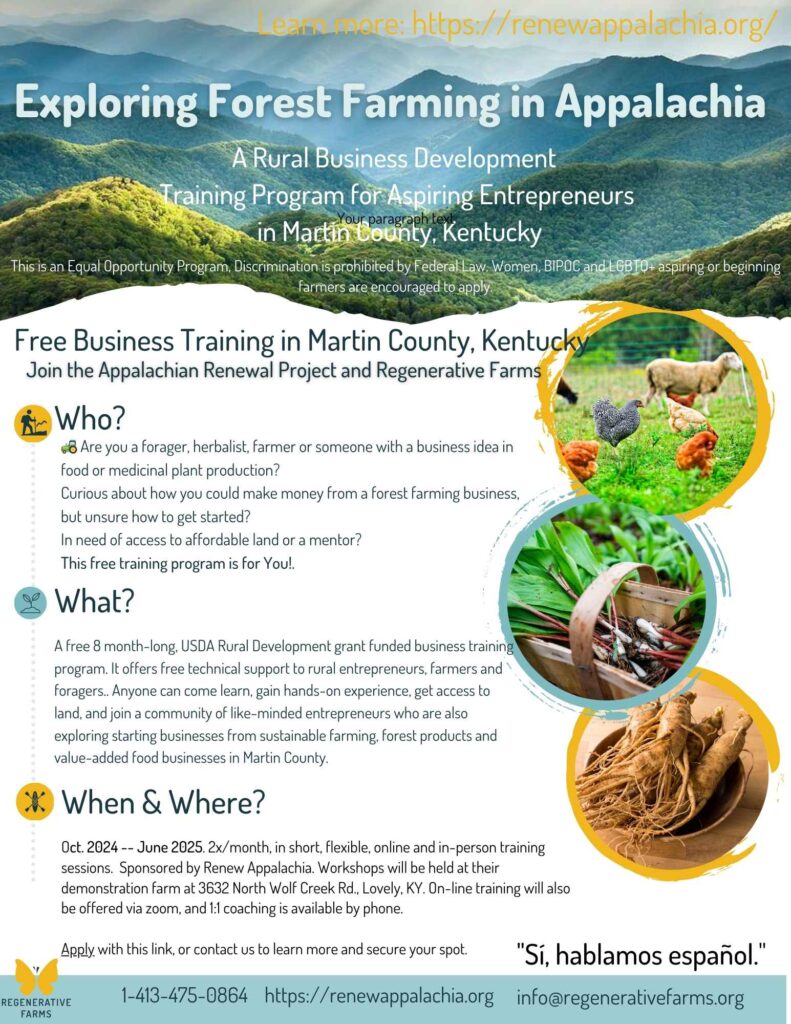
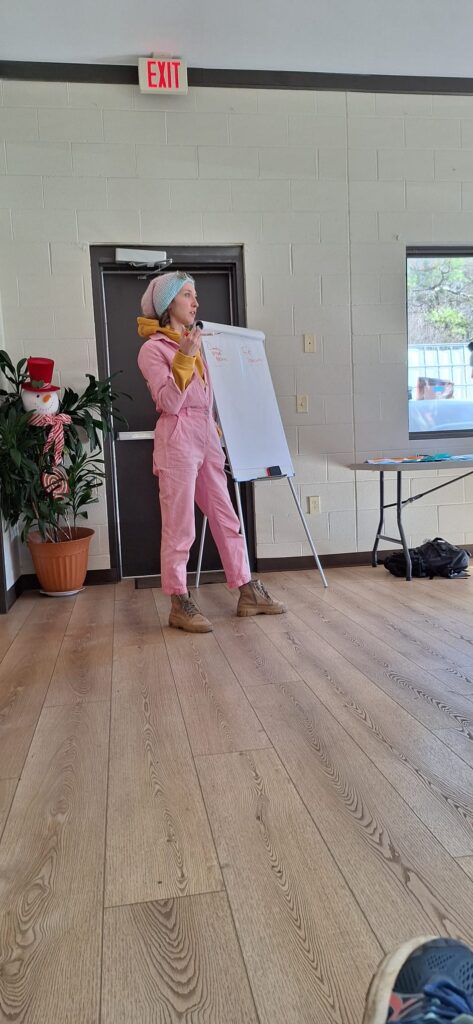
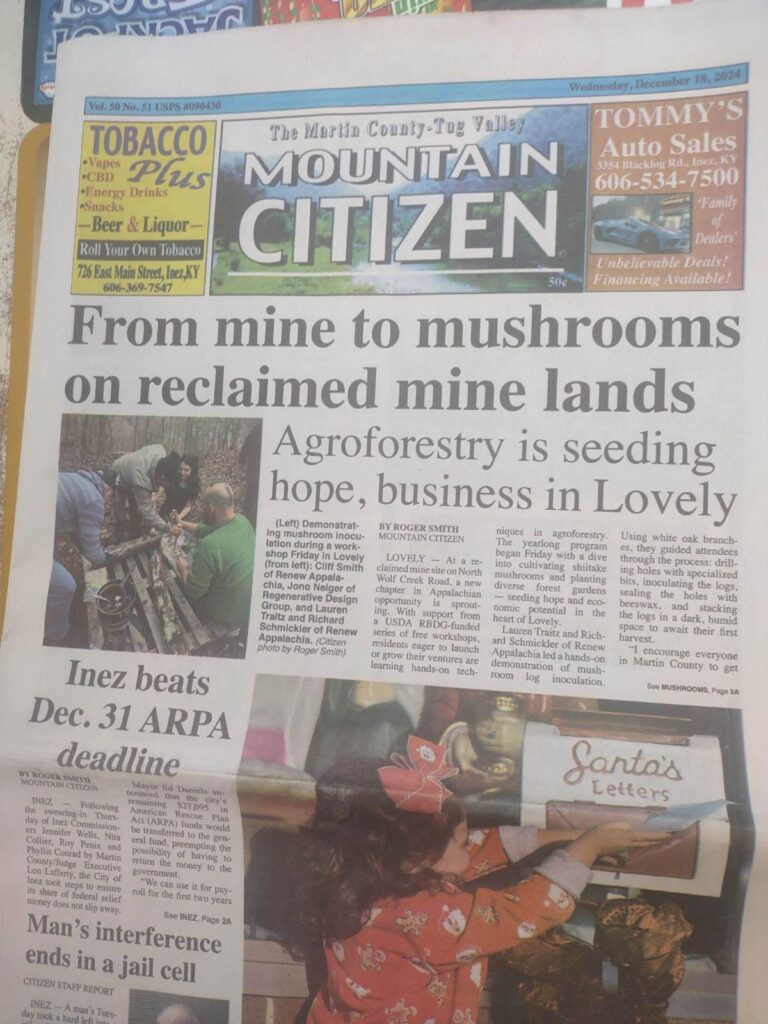
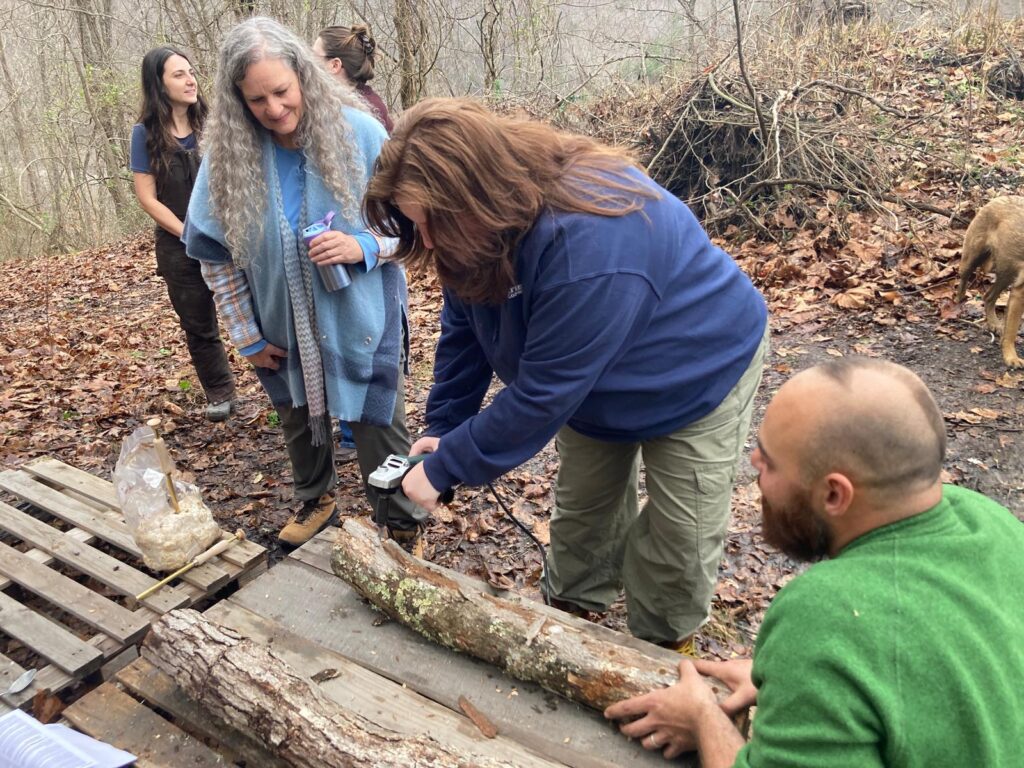
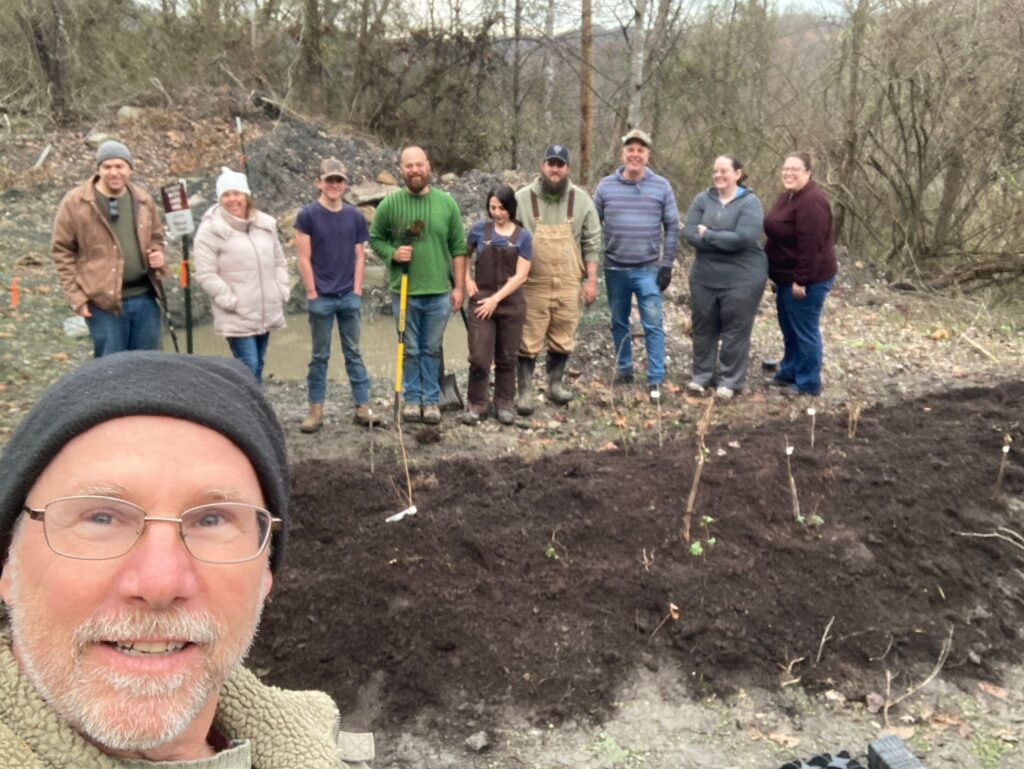
Rural Maui County Hawai’i, USDA RBDG 2025
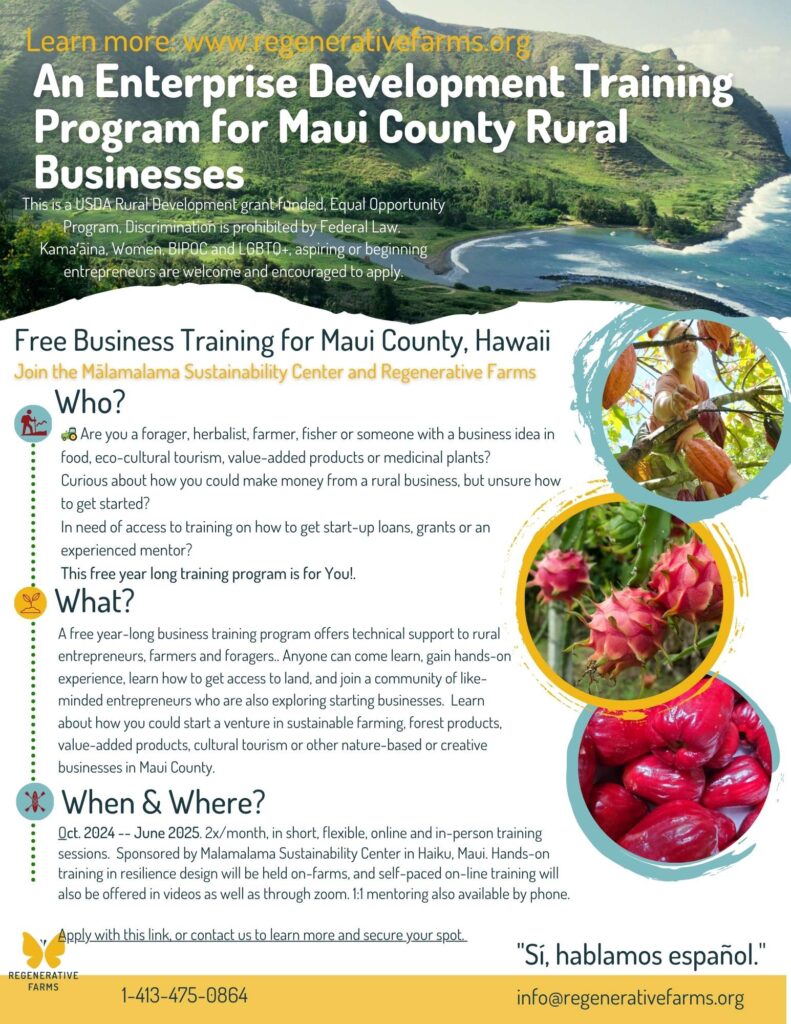
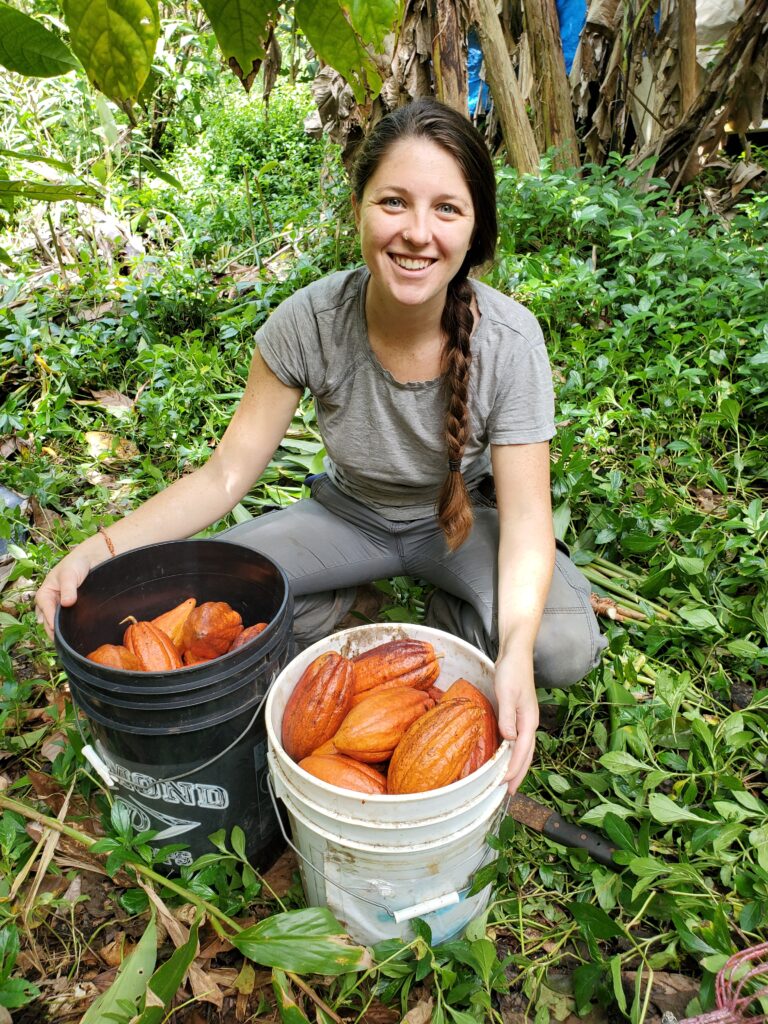
Kenya Seed Savers Network
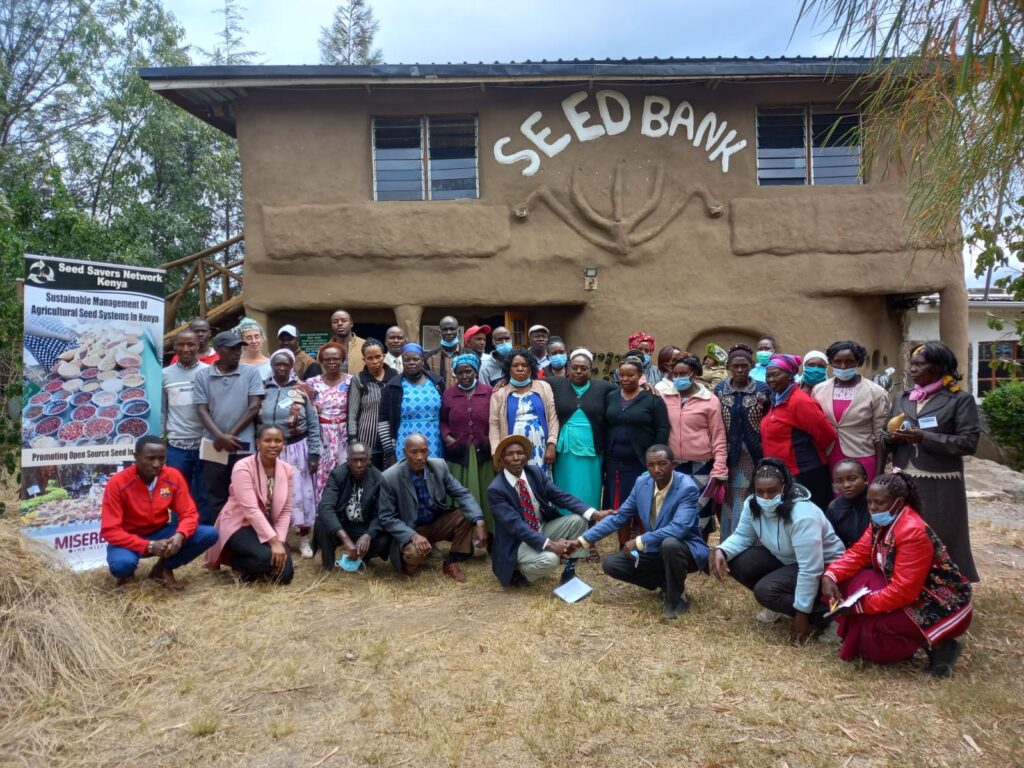
Haiti, Womenful Voice 2025
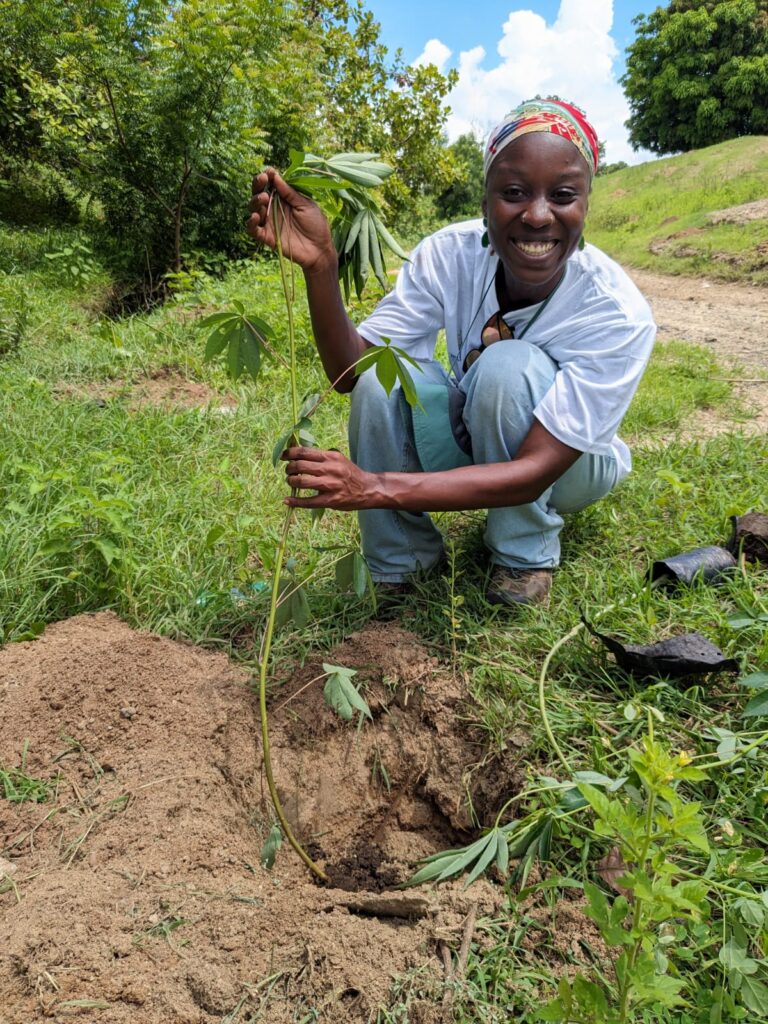
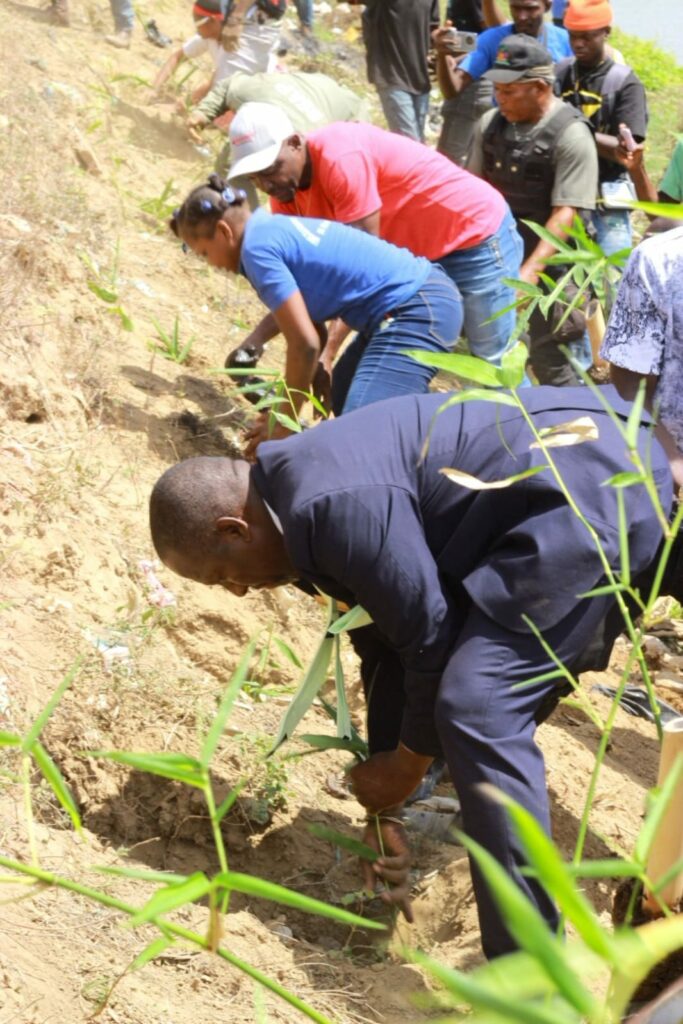
Kenya, Maasai Center for Regenerative Pastoralism, 2025
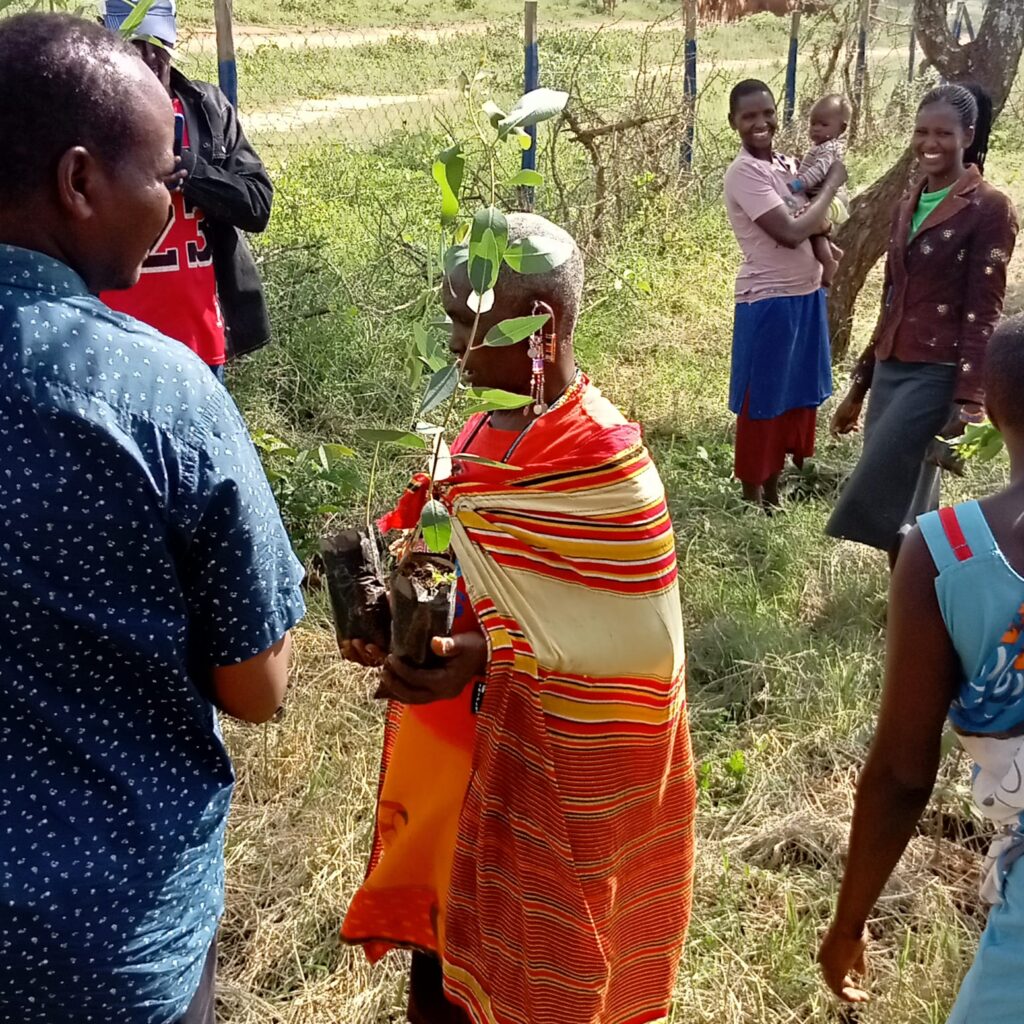
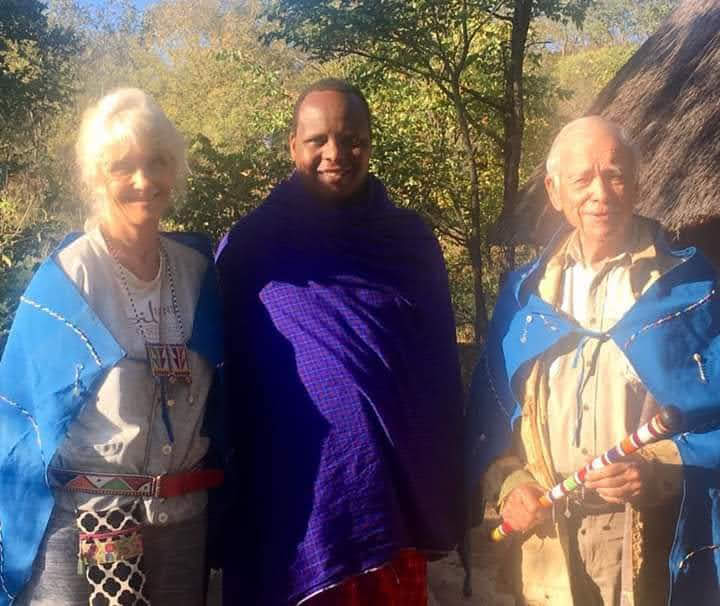
Dalmas Tiampati, clan leader meeting with mentor Alan Savory, the founder of Holistic Management/Savory Center
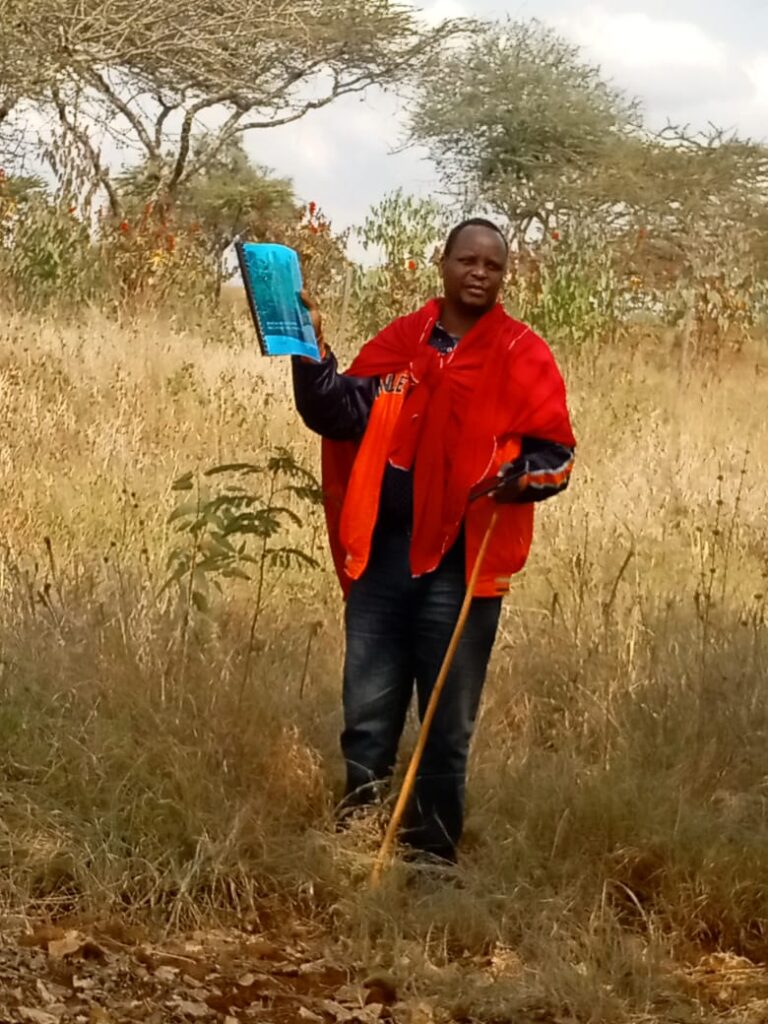
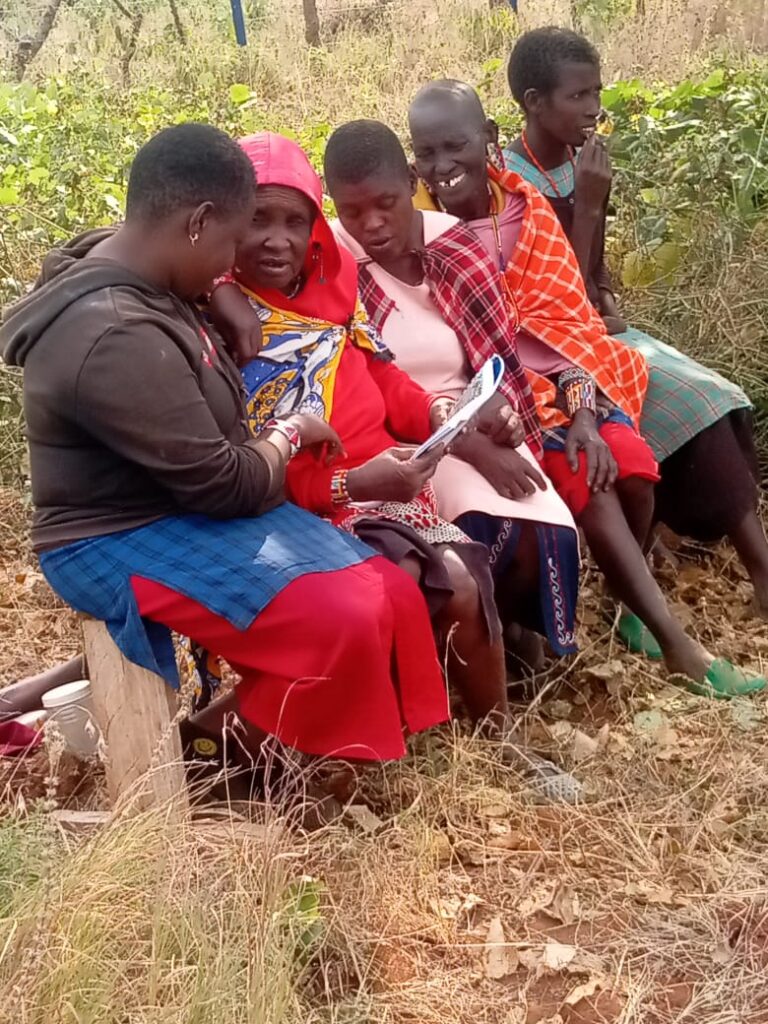
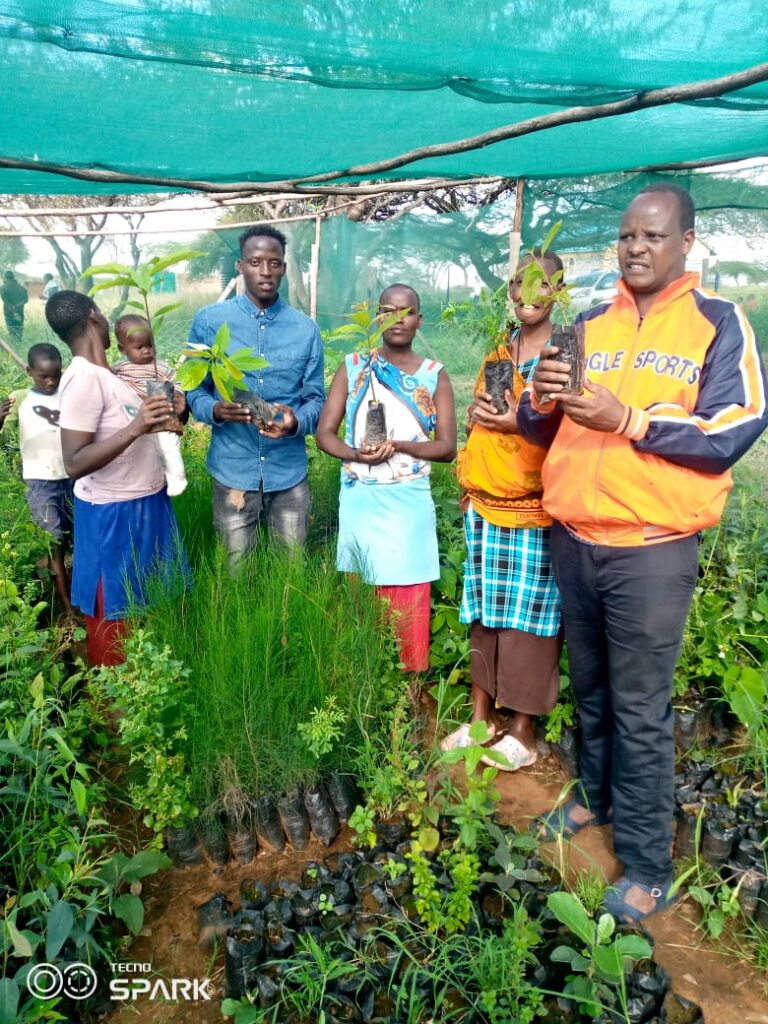
Peruvian Tropical Andes, APARMASH, 2025
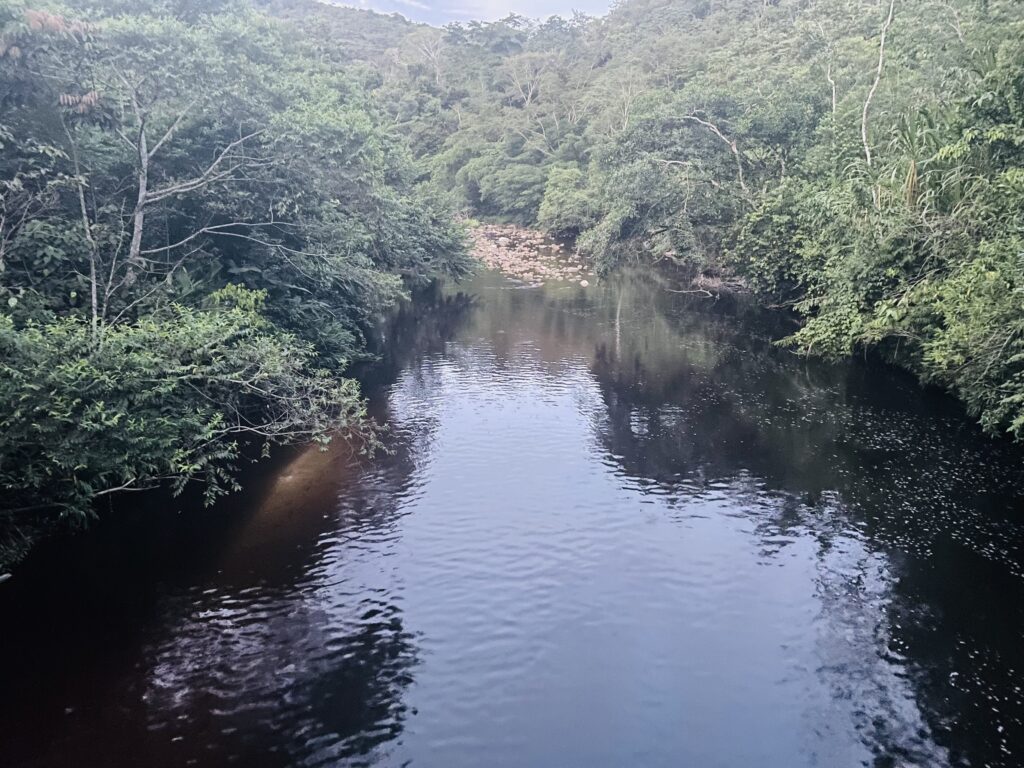
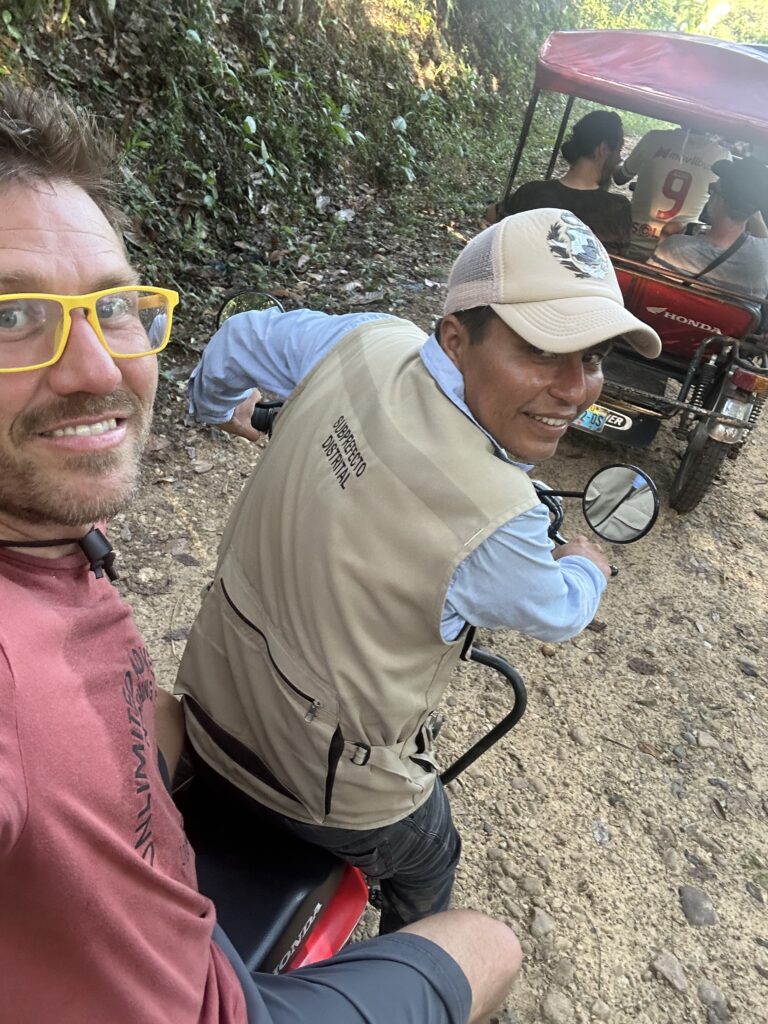
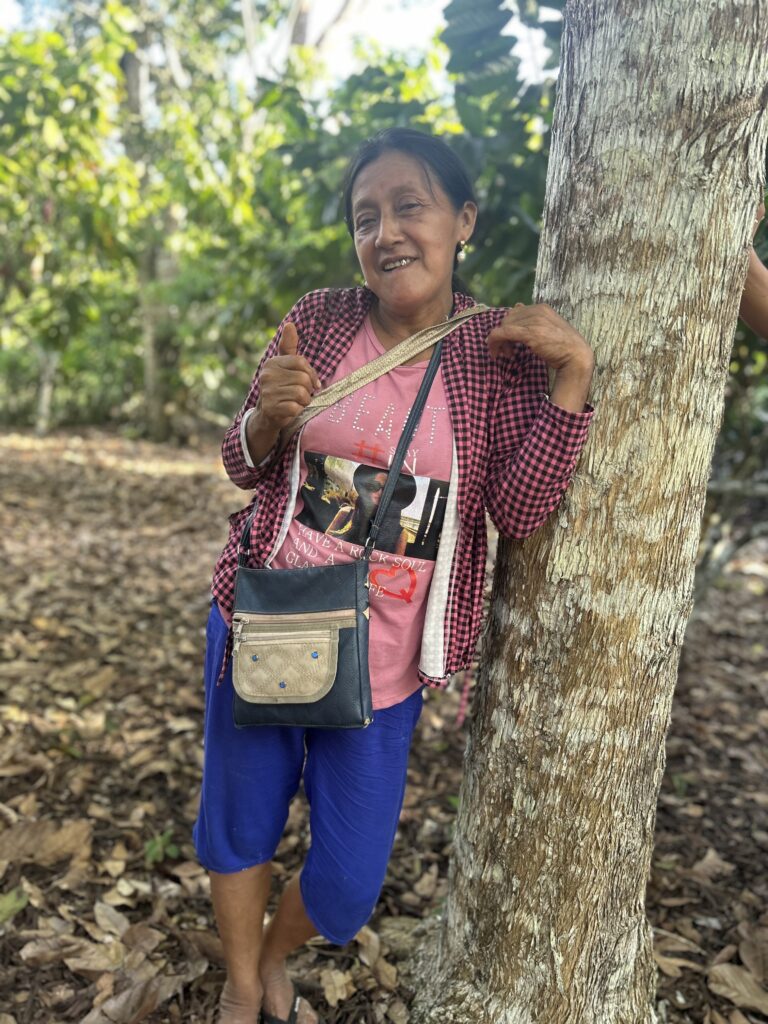
Cooperative farmers ferment their cacao beans to improve flavor and add value.
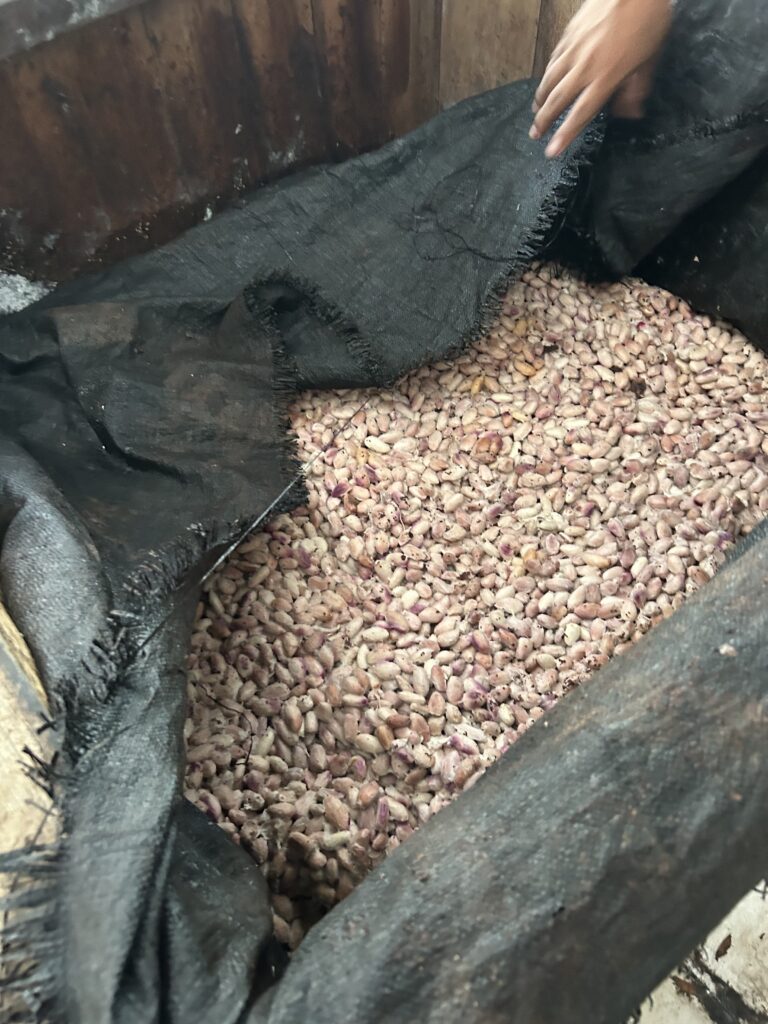
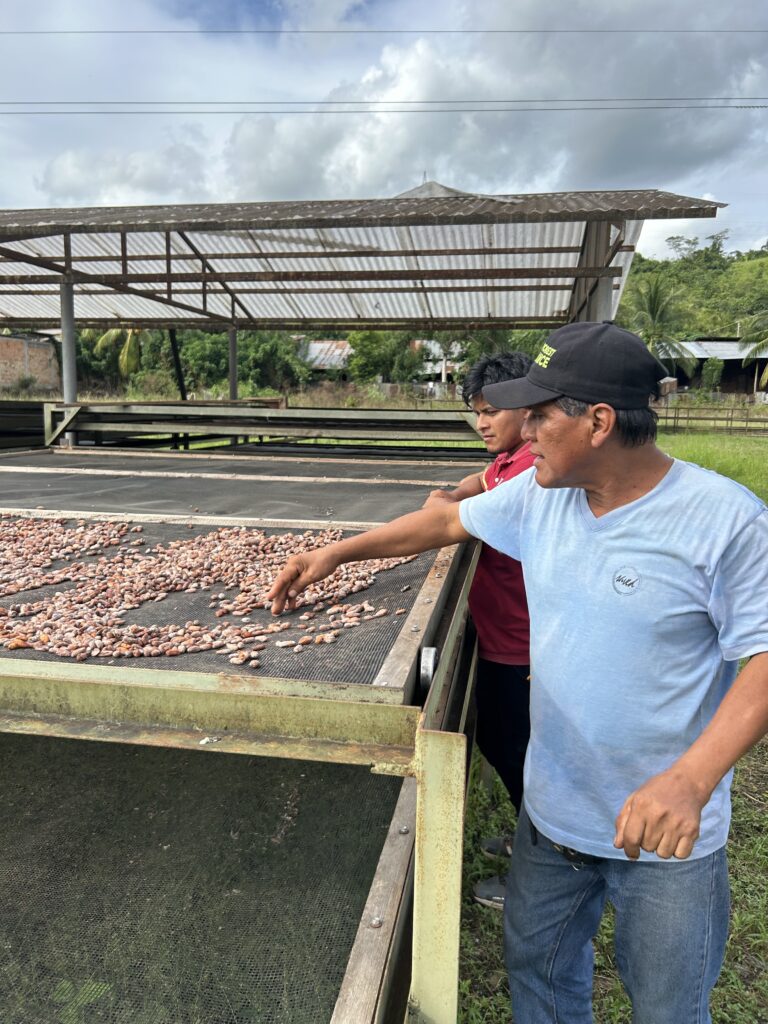
Then beans are dried in solar driers built by the cooperative before being shipped to US bean to bar companies that help the farmers get the best price for their hard work. The cooperative is also working with farmers to market another less known but extremely healthy native superfood – sacha inchi.
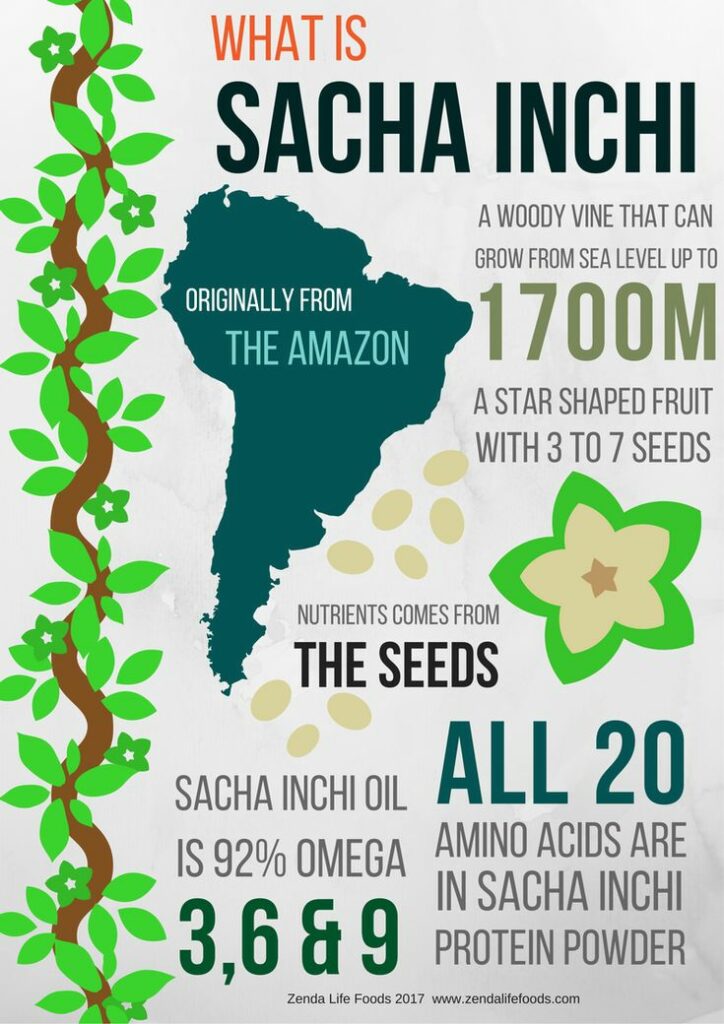
Roatan, Honduras -Support Roatan fruit tree food security seedling give away, 2025.
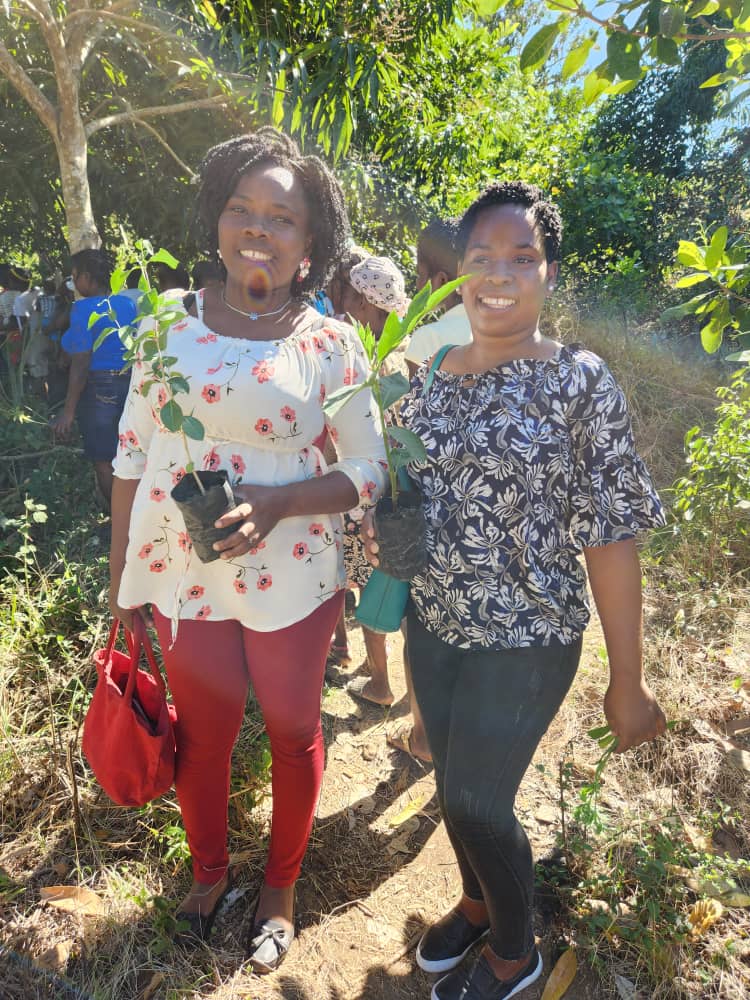
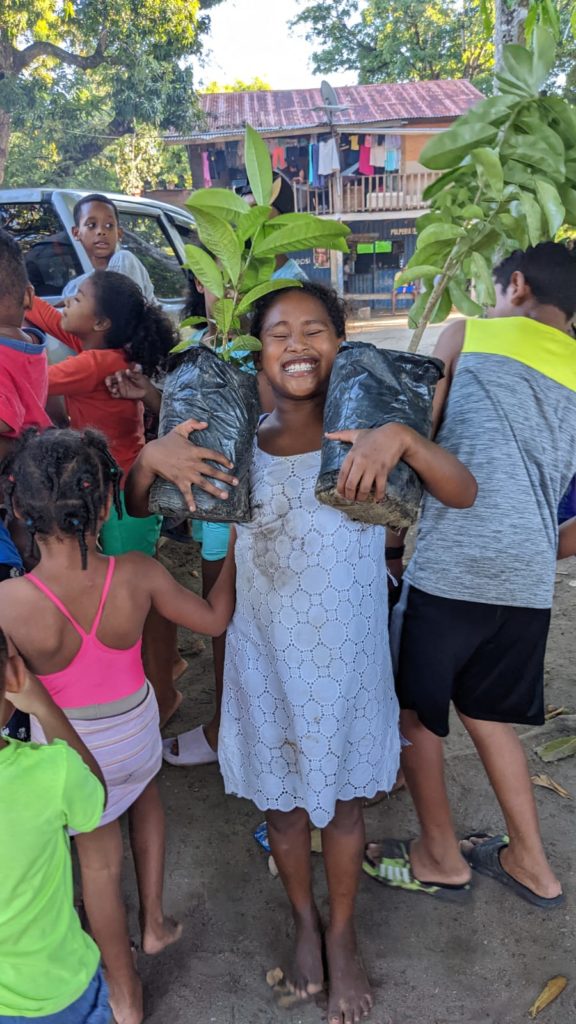
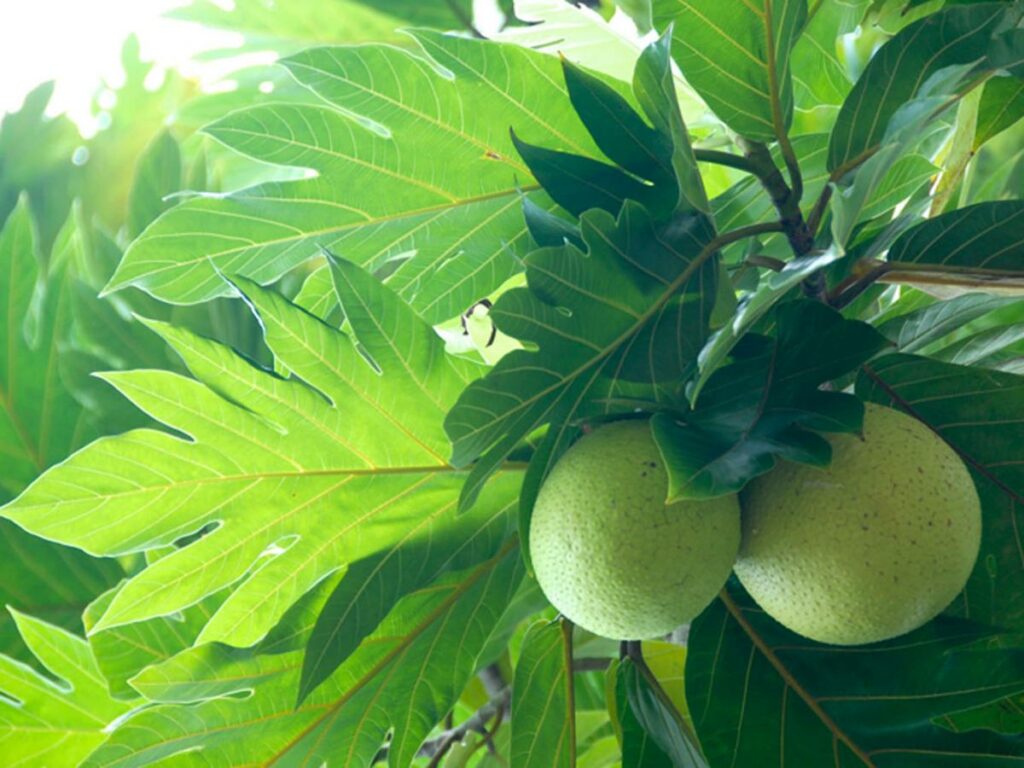
They worked with a local bakery to purchase, dry and mill locally grown breadfruit to support farmers, and build the islands food security.
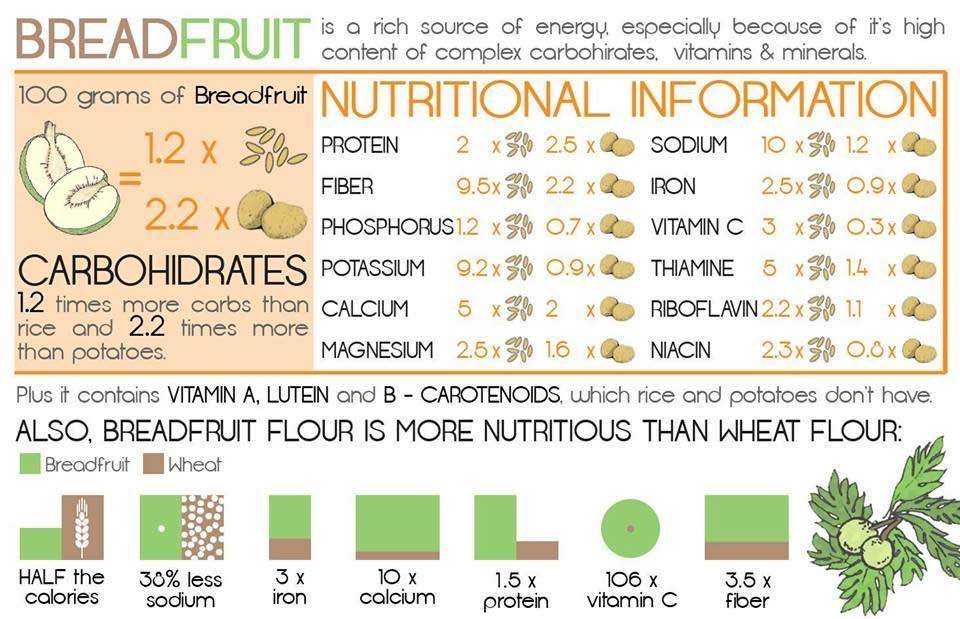
Peruvian Amazon, Camino Verde
CV sources sustainably harvested aromatic plants for their sustainable rainforest essential oil brand Moena Botanicals. They help building capacity and knowledge sharing among indigenous tribal partners in 12 communities in the Amazon. Together they’ve planted over 50,000 endangered aromatic rosewood trees.
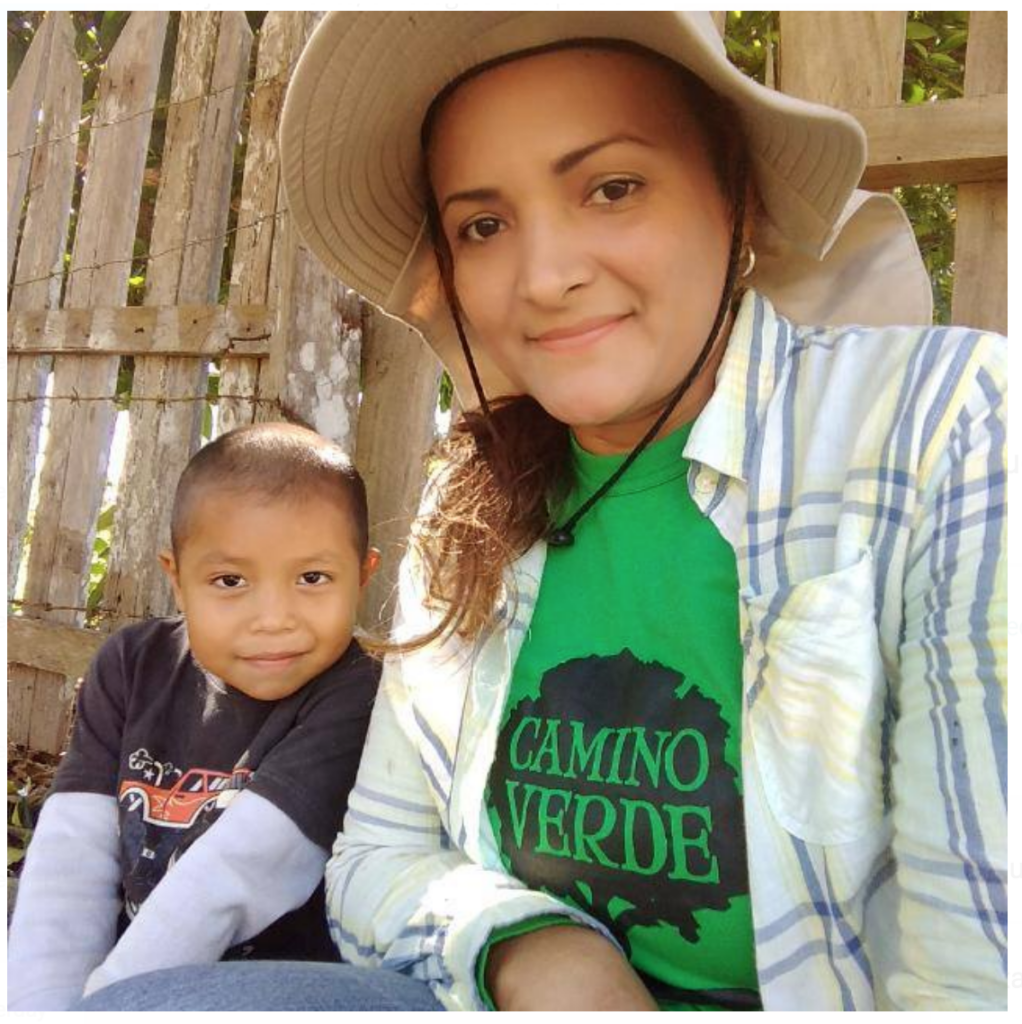
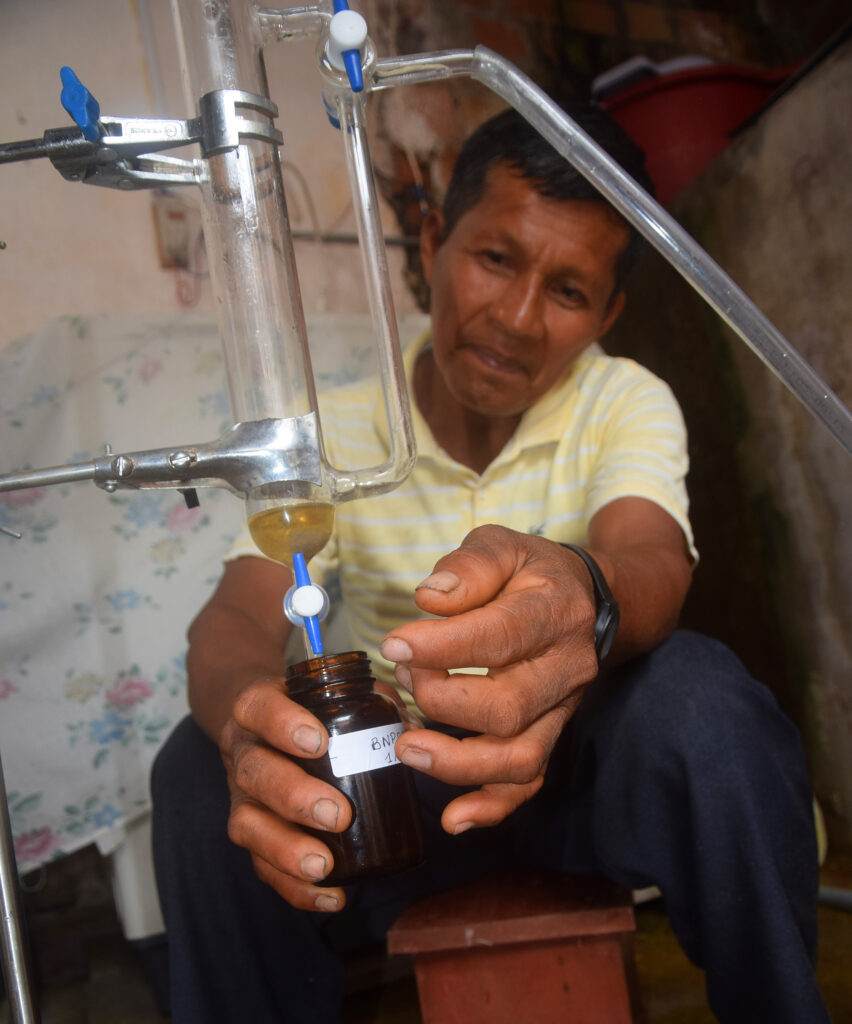
Kenya
A Samburu pastoralist food security project taught 30 women syntropic agroforestry and permaculture in a year long training program. Fundraising assistance helped the project get funding to install a solar powered water pump, sand well, and micro-irrigation system for their pilot food forest. The training program also taught them about beekeeping as an income source and techniques to use bee fences to keep wild elephants from destroying their hard work and precious crops. Various methods and tools are needed for growing nutritious food and preventing wildlife conflicts in places where women must restore highly degraded and dry sites.
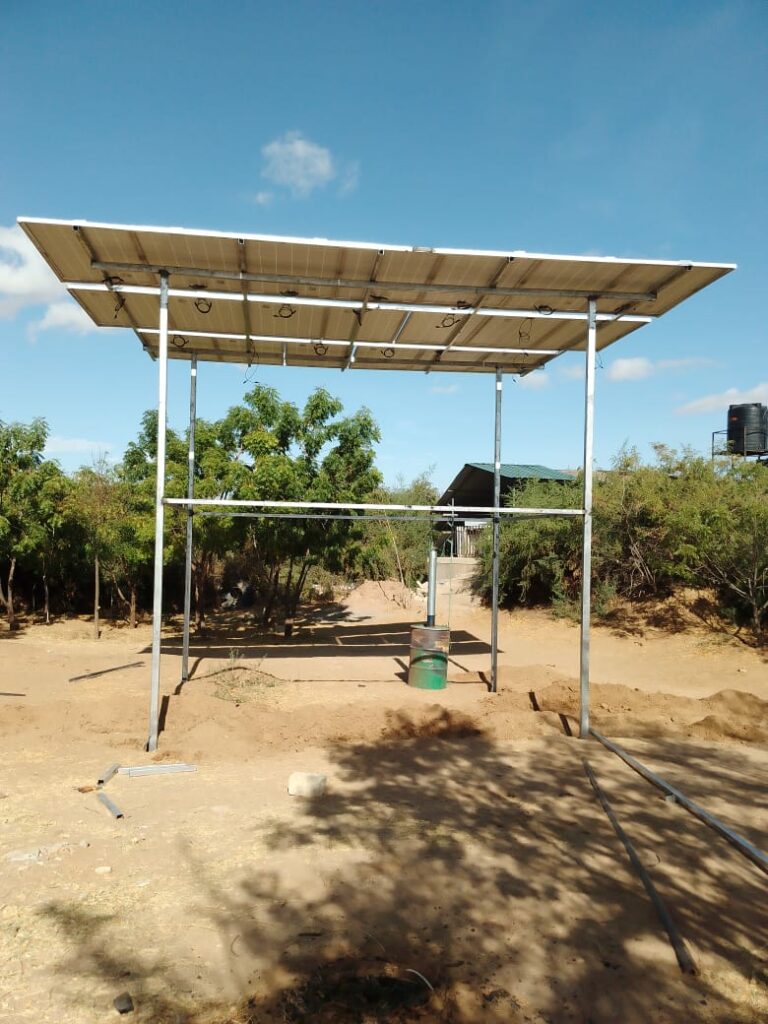
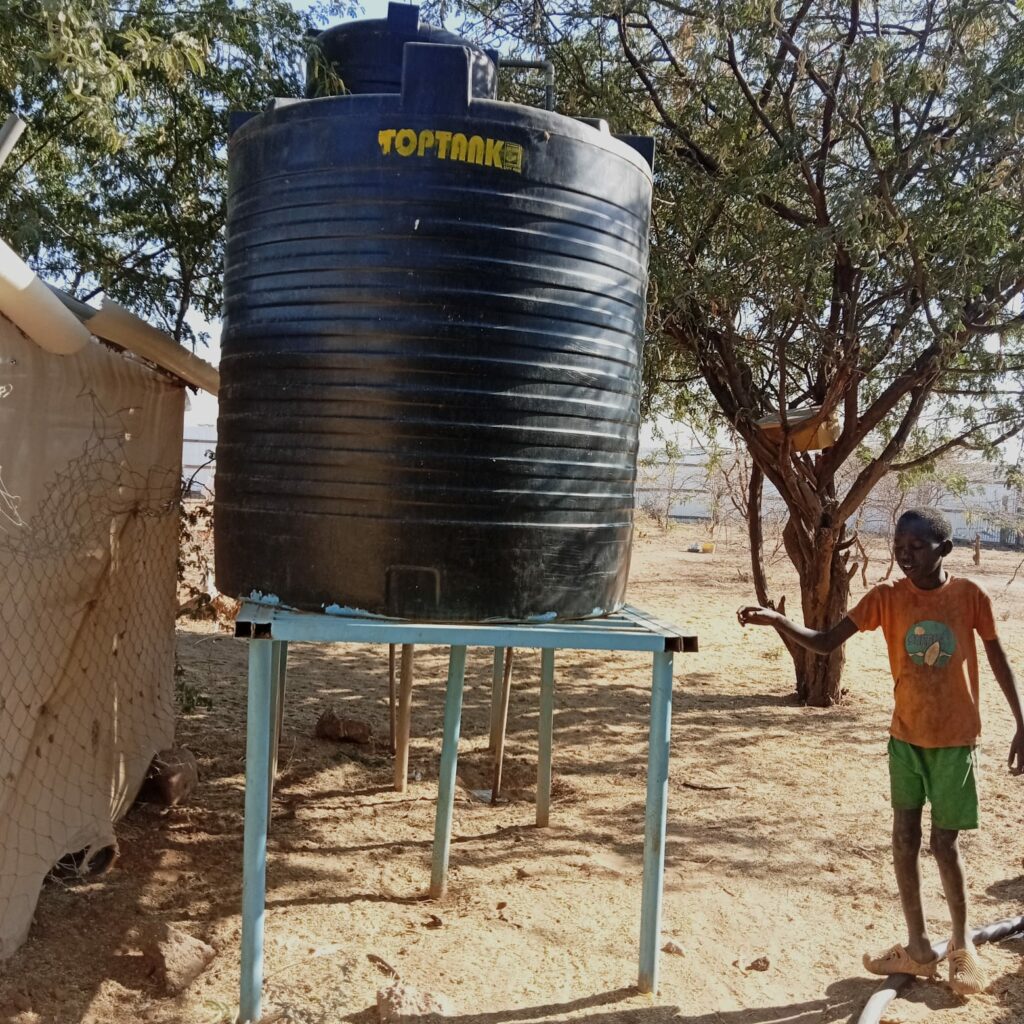
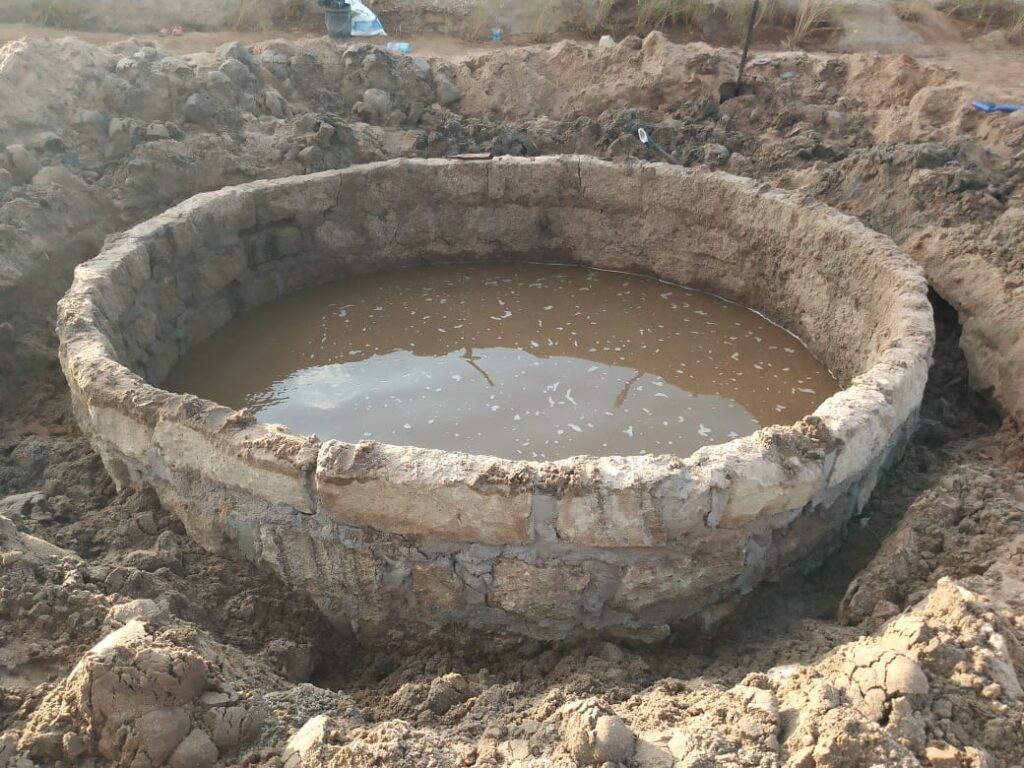
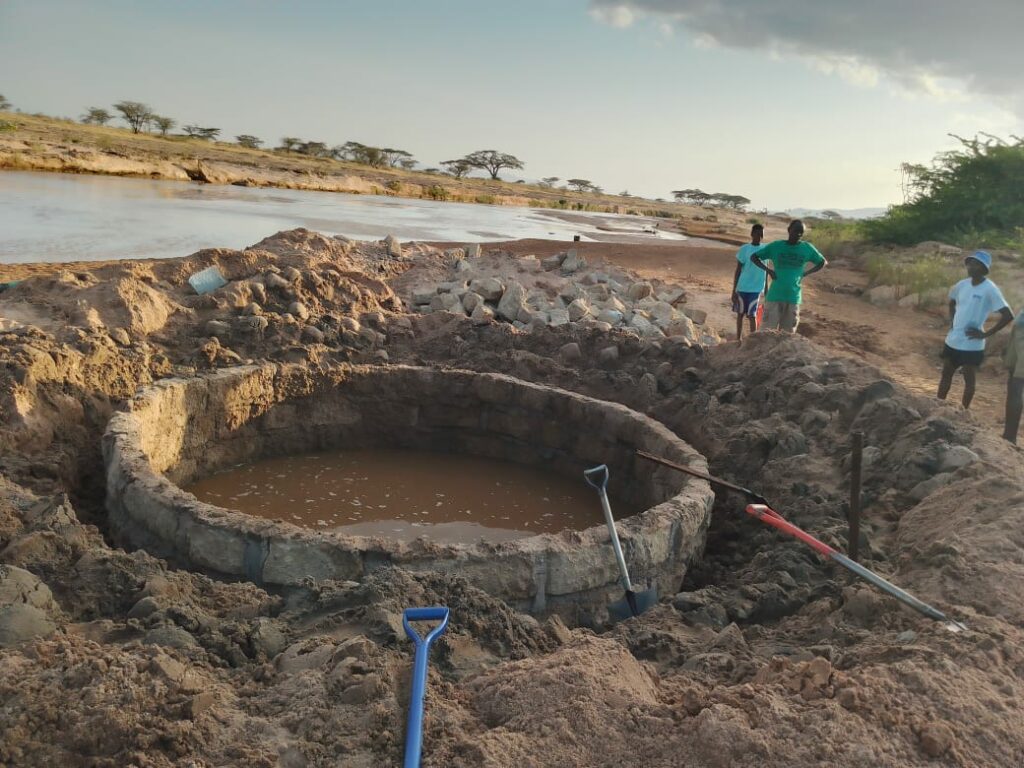
In the dryseason the river water gets very low, so the sand dam well was installed during the low season.
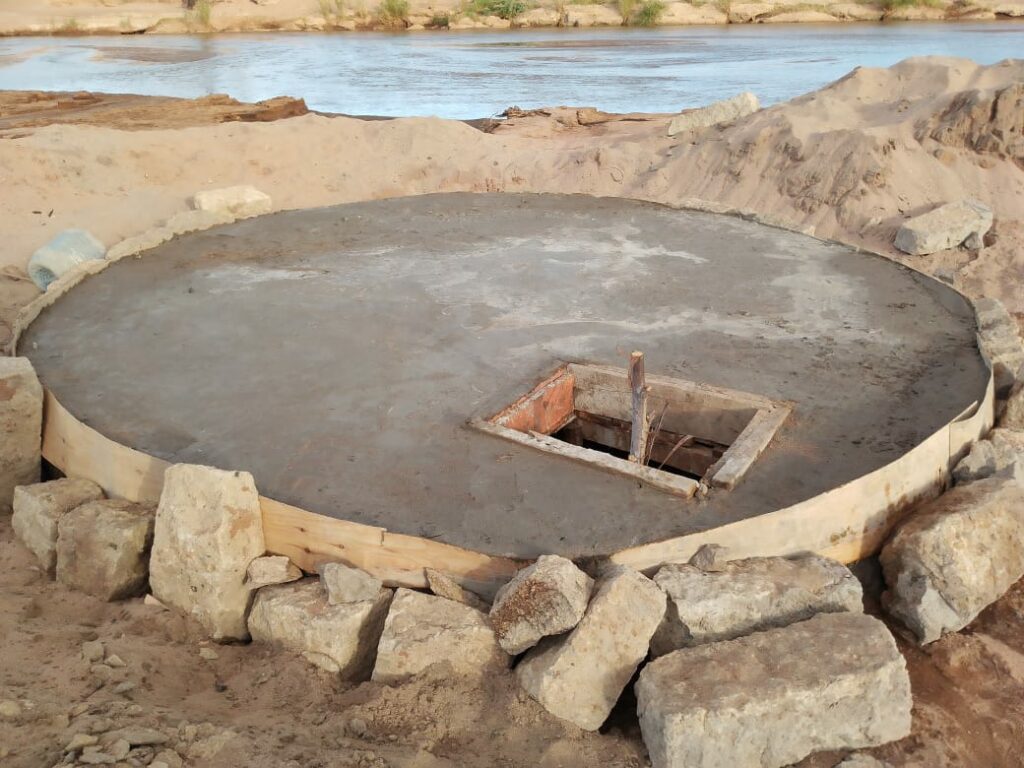
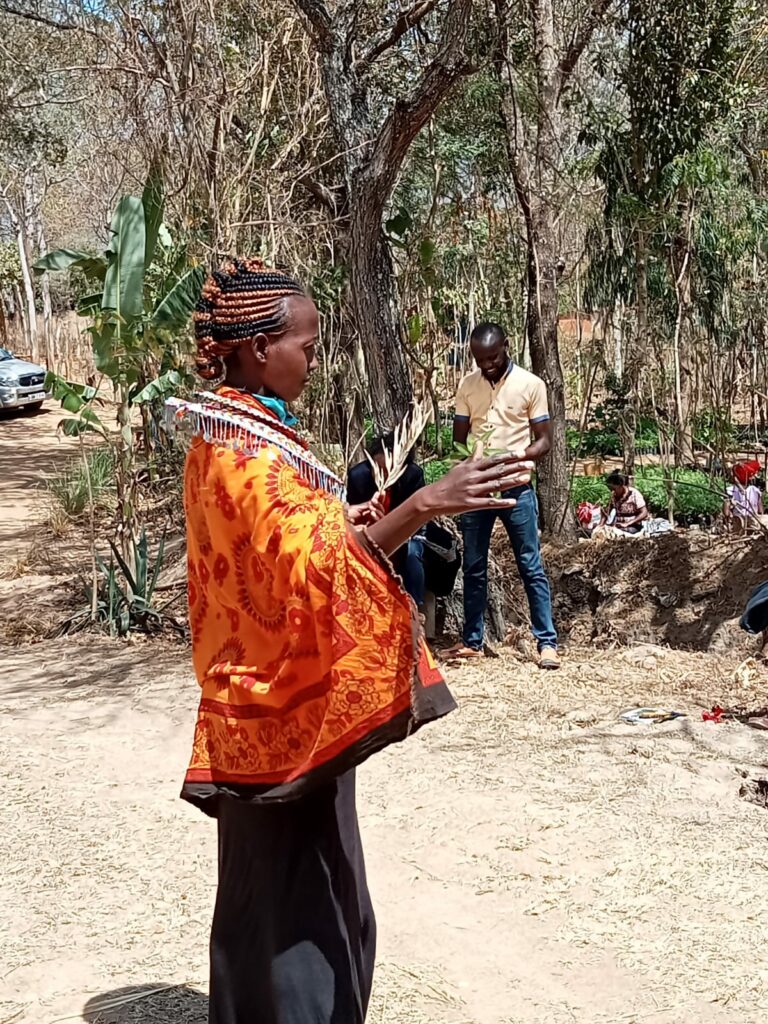
Two women were provided scholarships to travel to training and get certified as Permaculture Designers
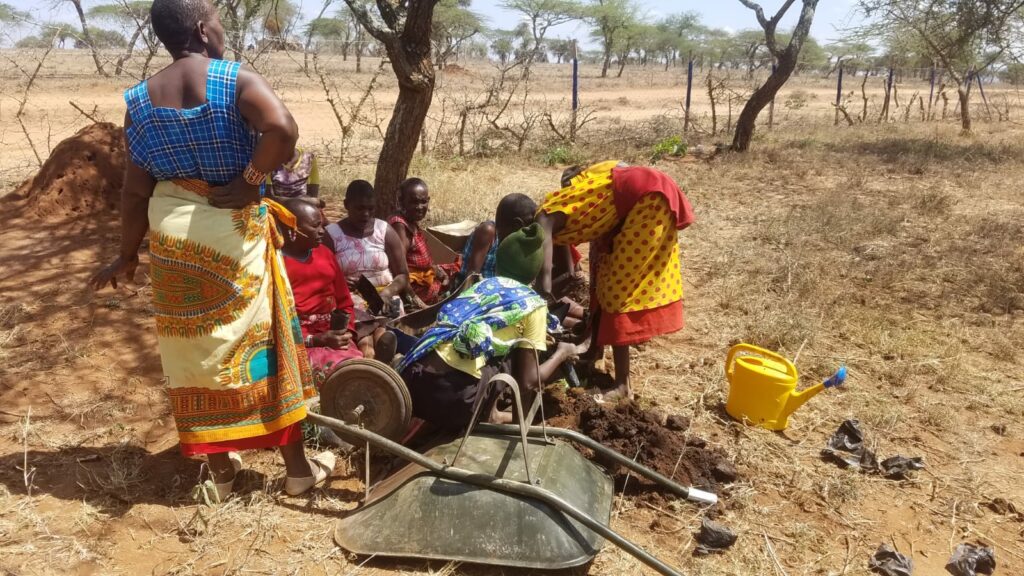
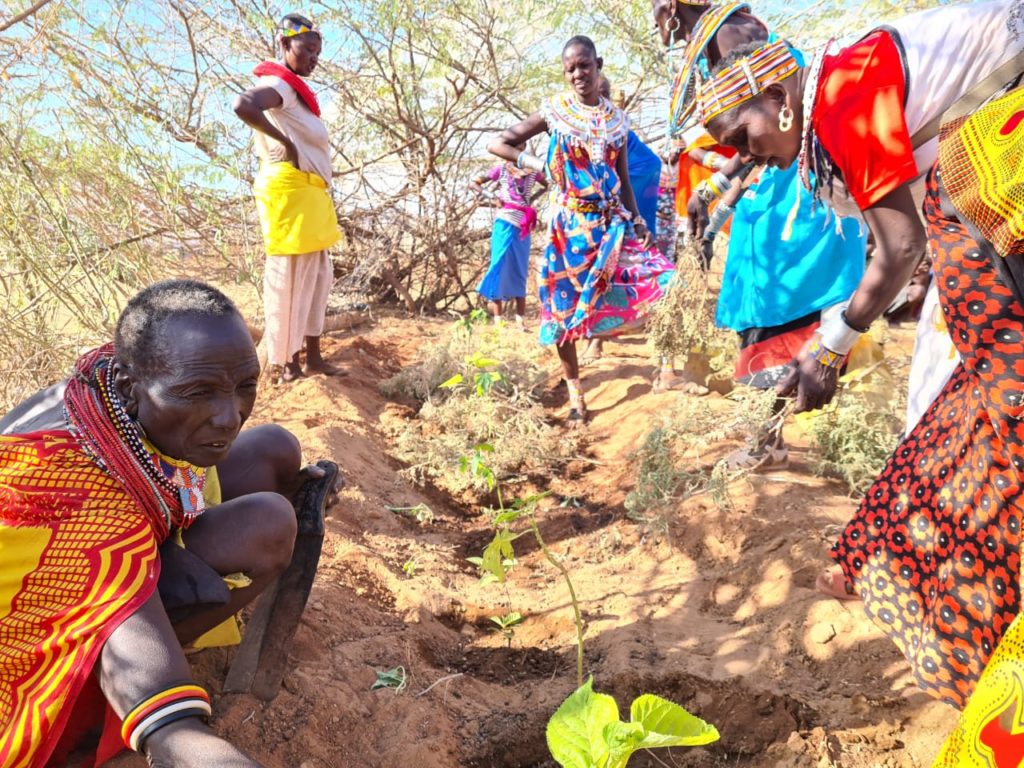
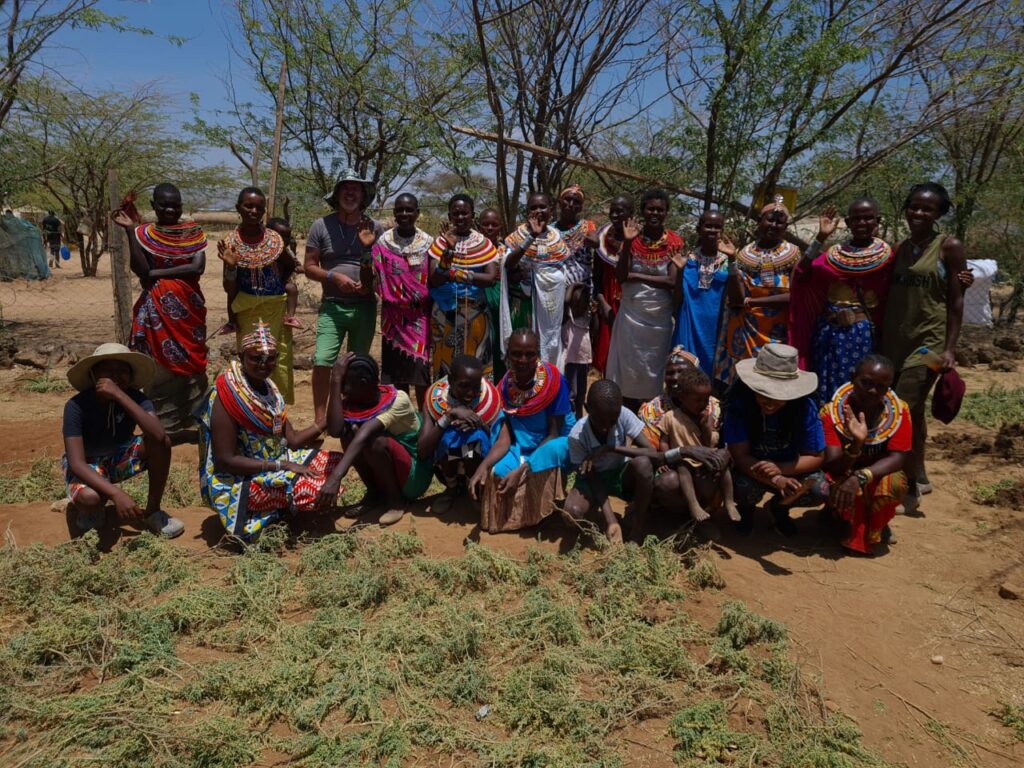
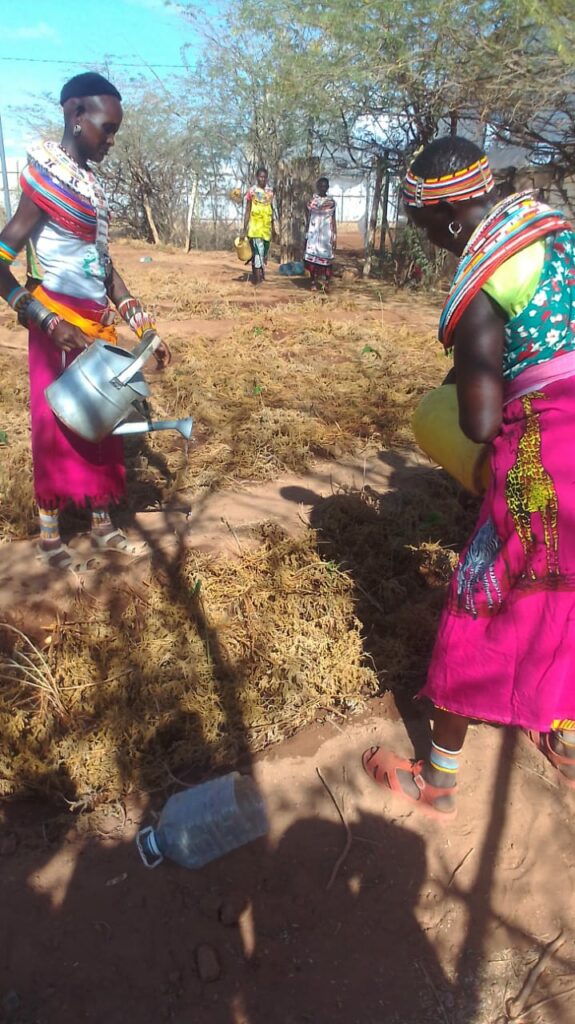
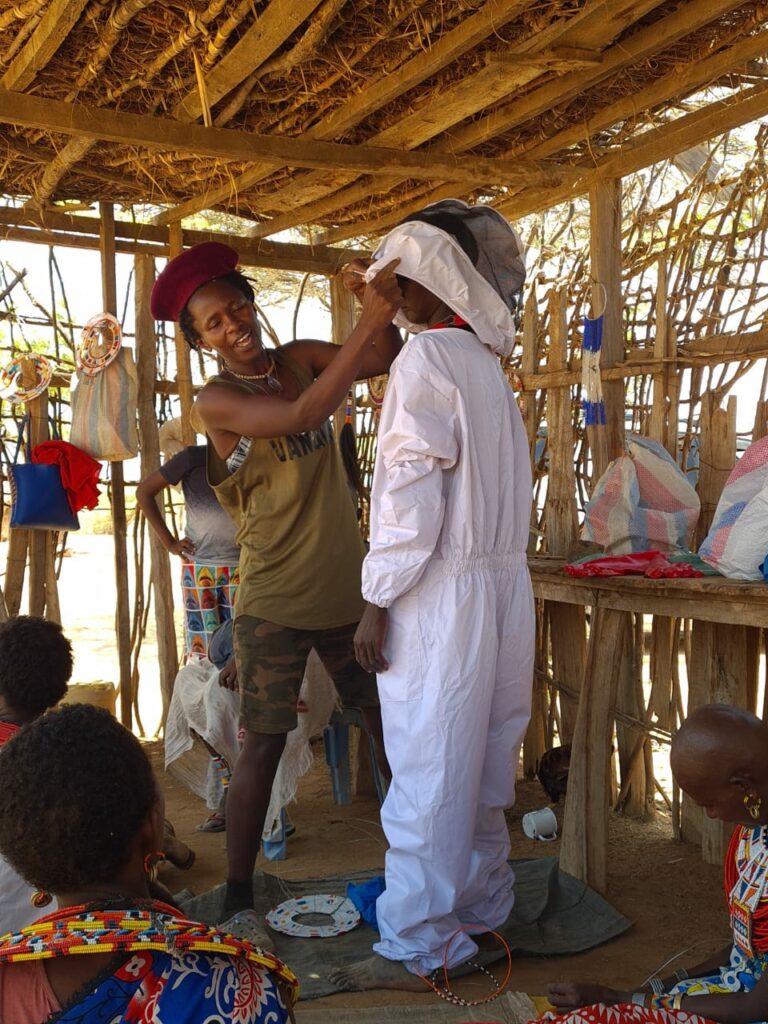
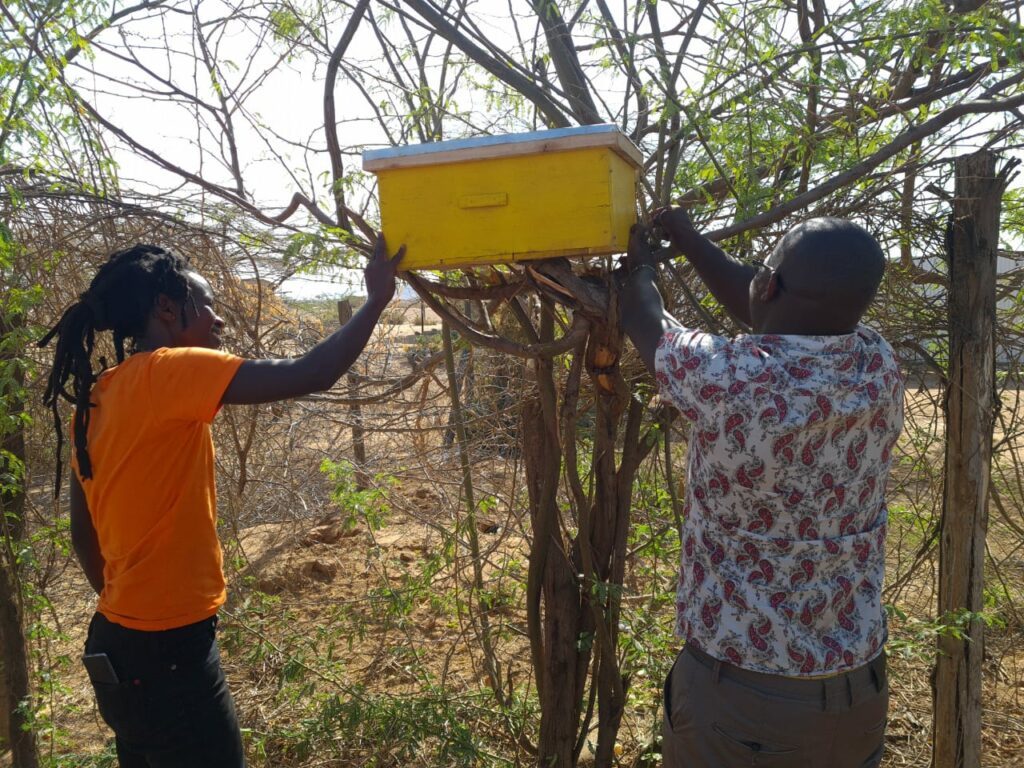
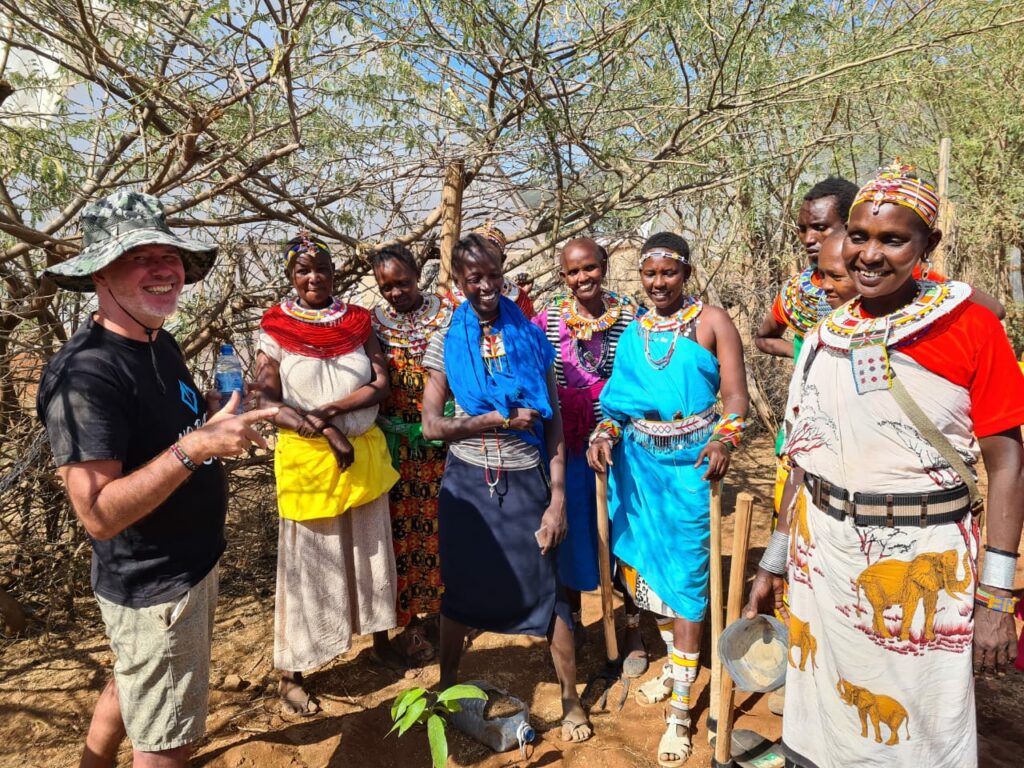
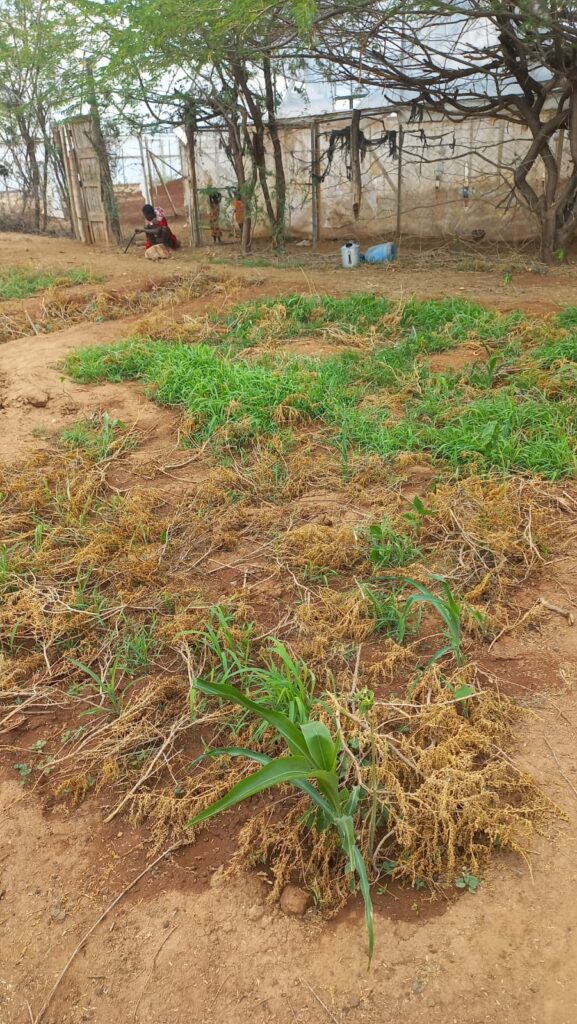
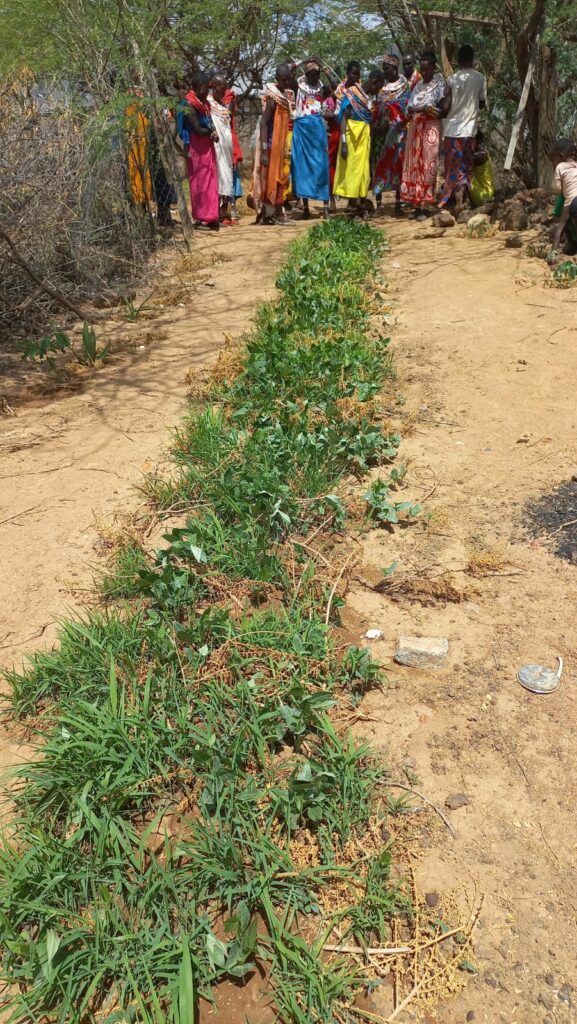
The Drylands Natural Resources Centre, Eastern Kenya
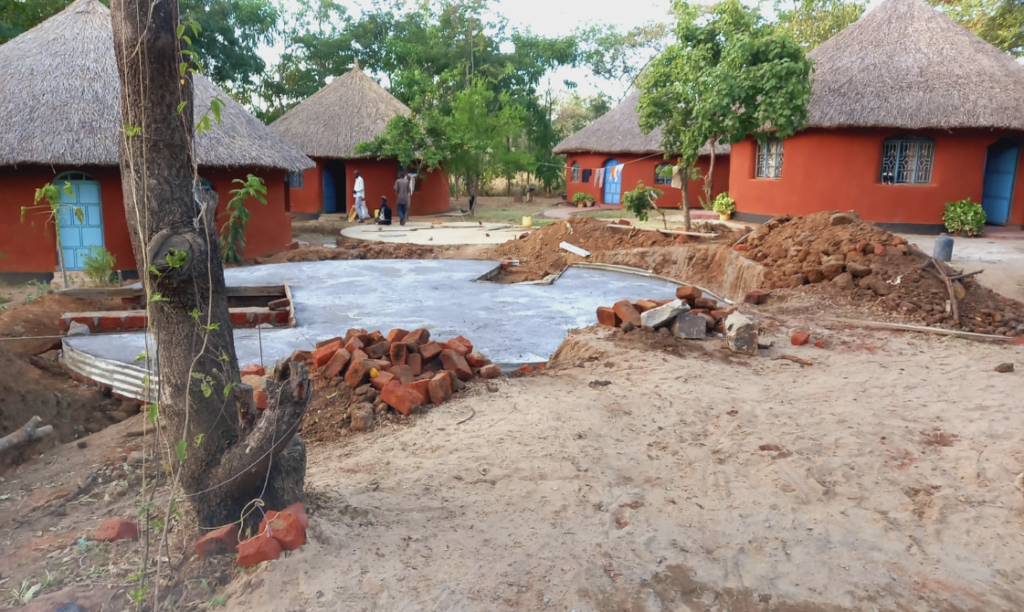
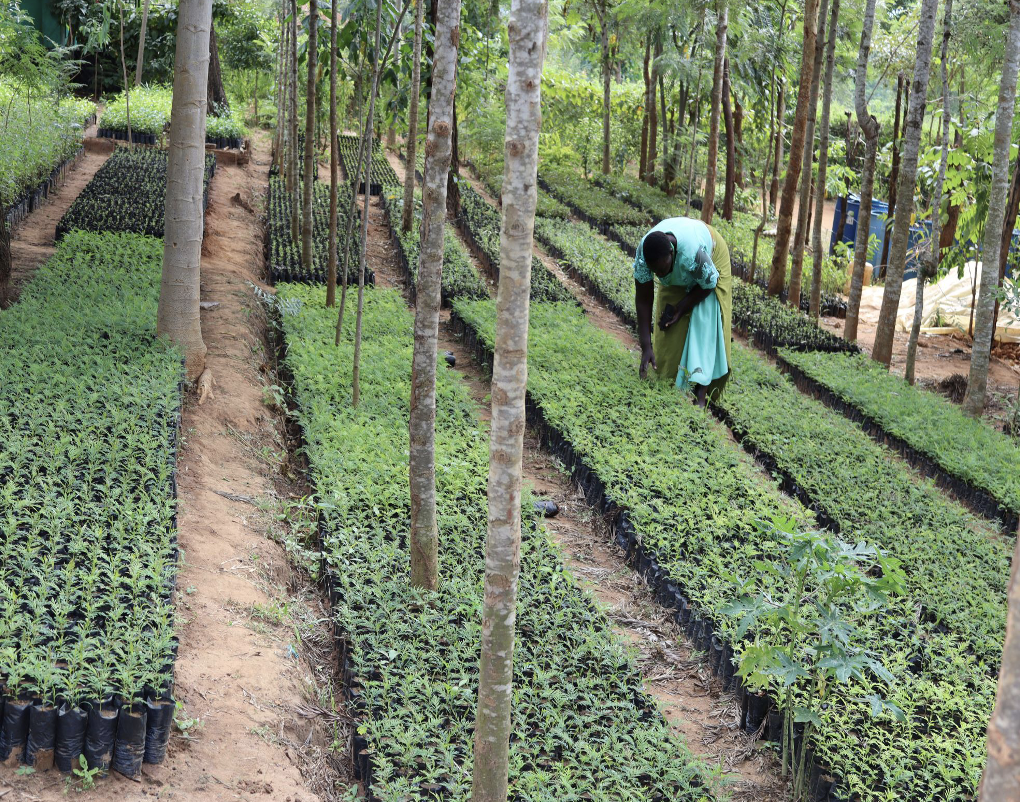
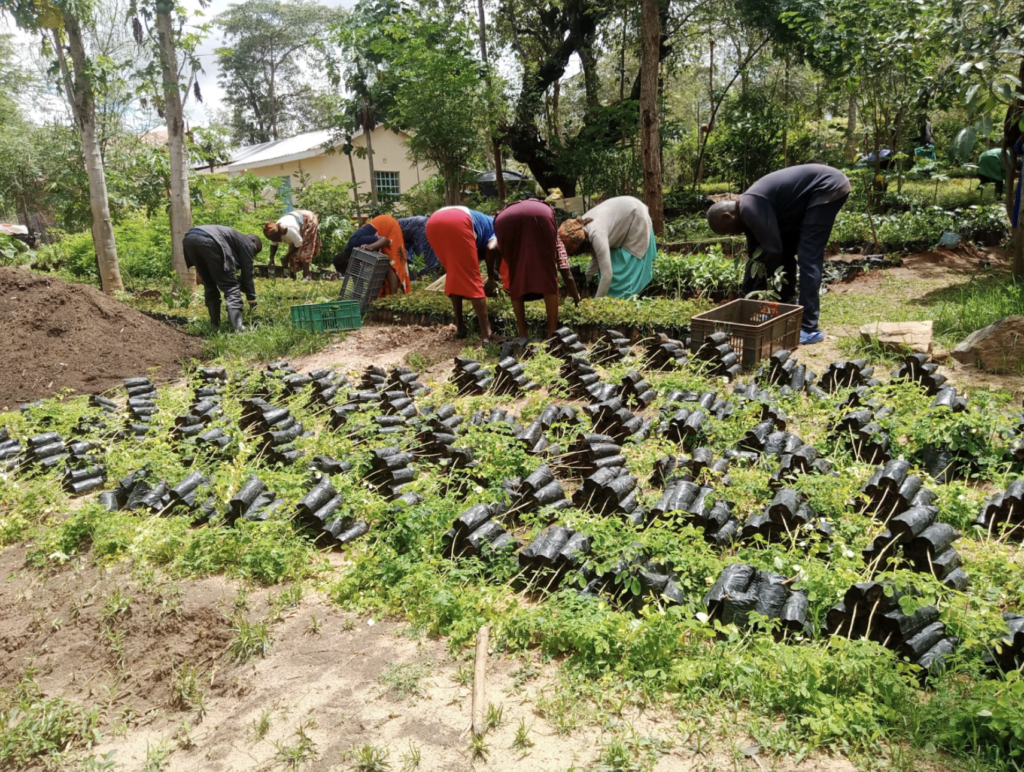
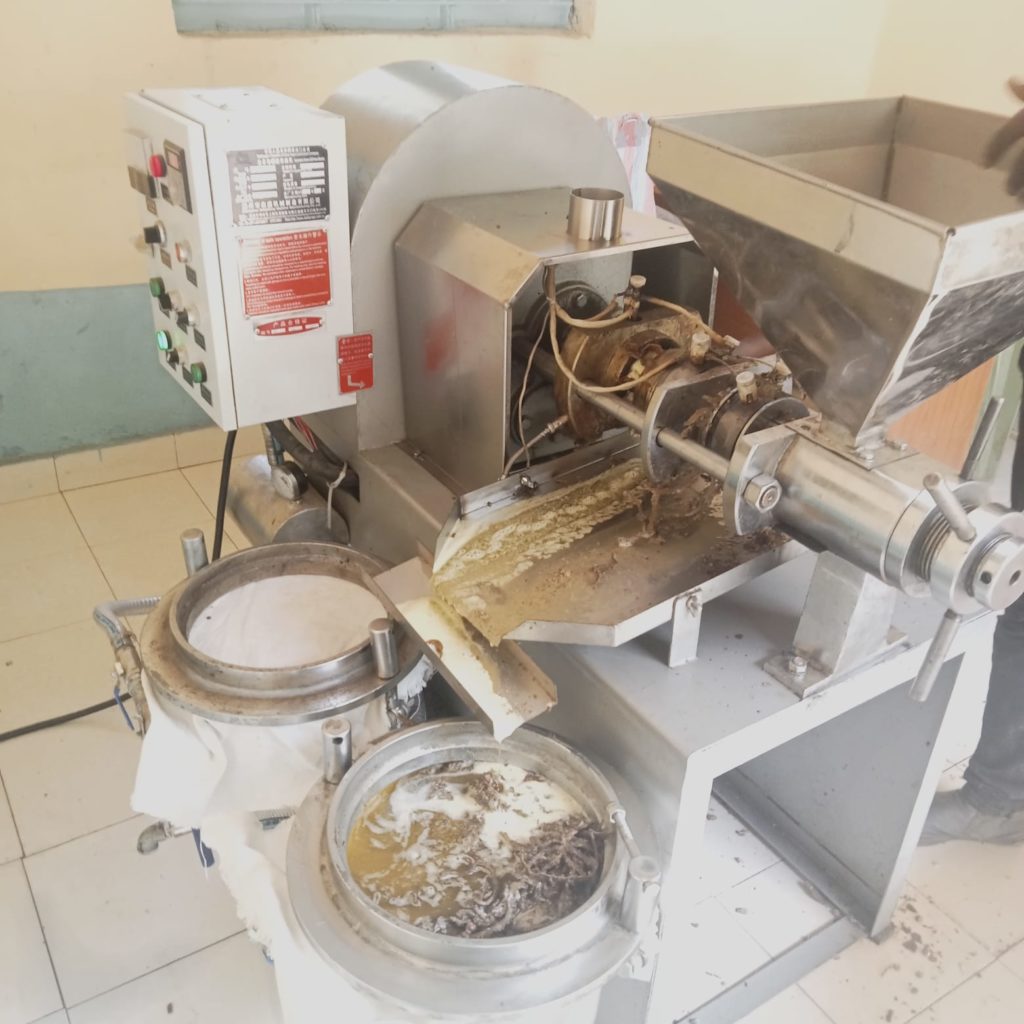
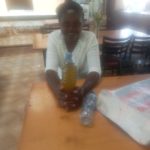
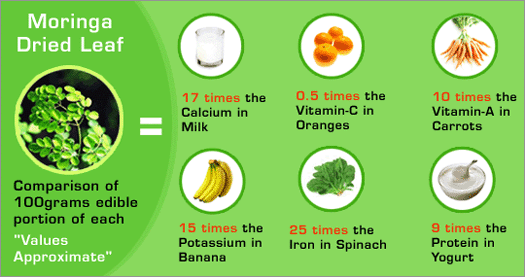
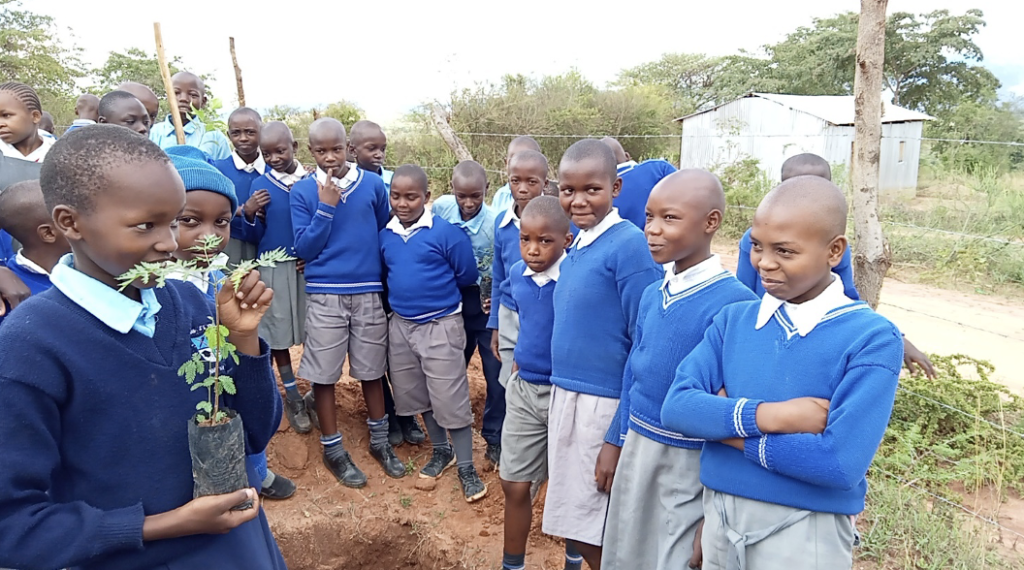
DNRC teaches boarding school children how to farm. The children help grow the food for their meals.
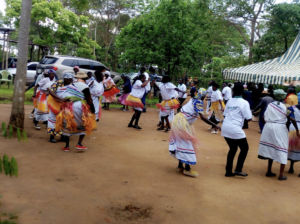
The Democratic Republic of the Congo, 2025 -Association Paysanne pour l’Autosuffisance Alimentaire (APAA is the “Farmers Association for Food Self-Sufficiency”)
2025, RF assisted APAA in securing funding and logistics support to import a seed oil press, expanding upon their farmer training efforts, tree seedling nursery and permaculture demonstration farm. They are now able to offer the more than 3000 families they empower, assistance to aggregate and process their own maize flour, and soon cooking oil from various seed oil crops they grow using regenerative methods, including peanuts and sunflowers.
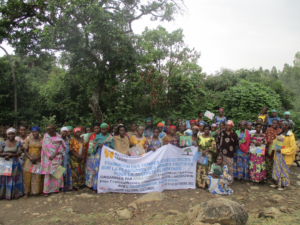
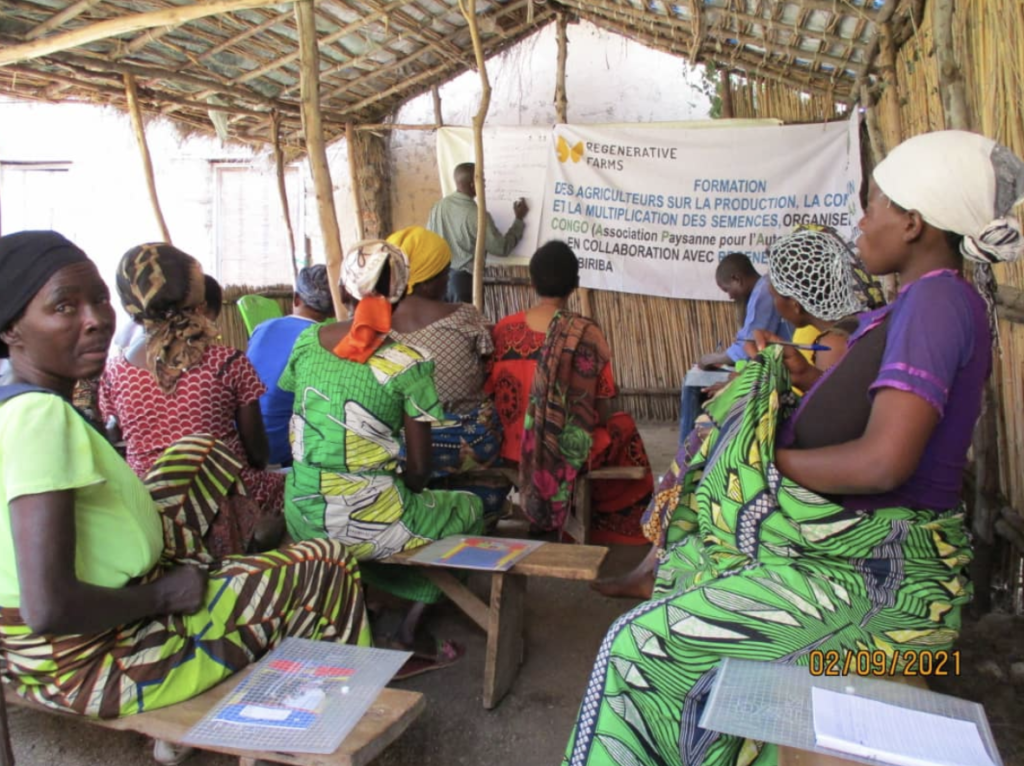
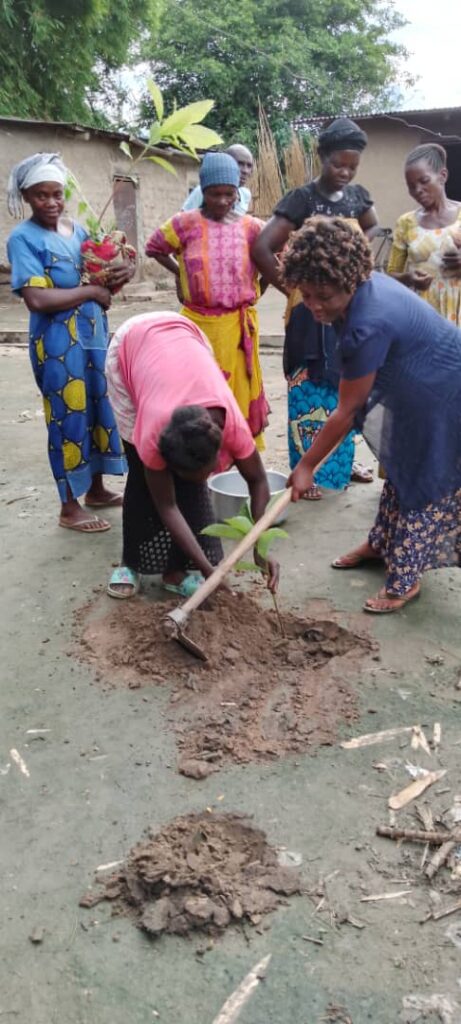
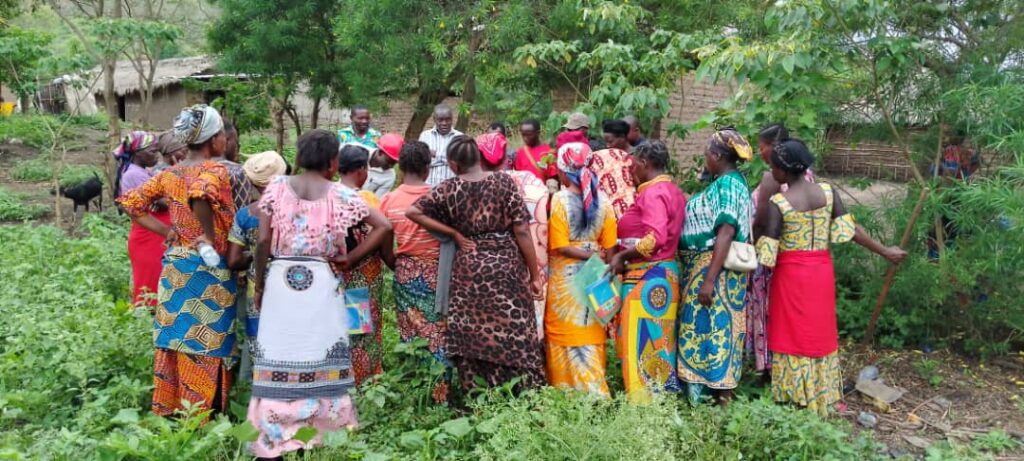
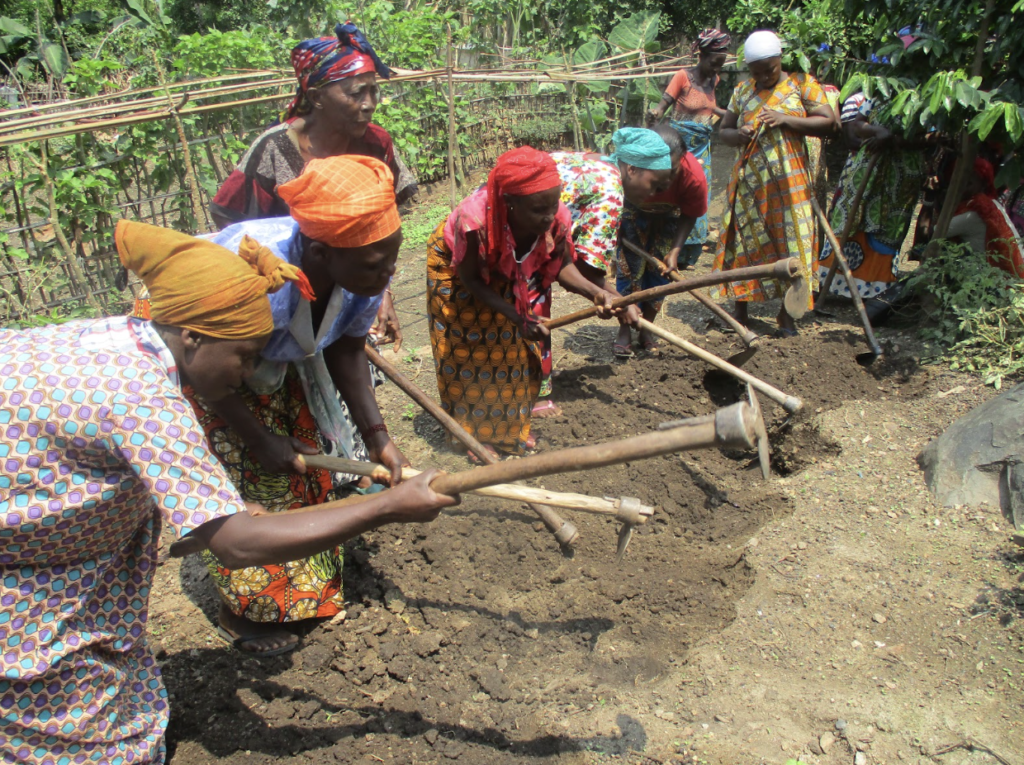
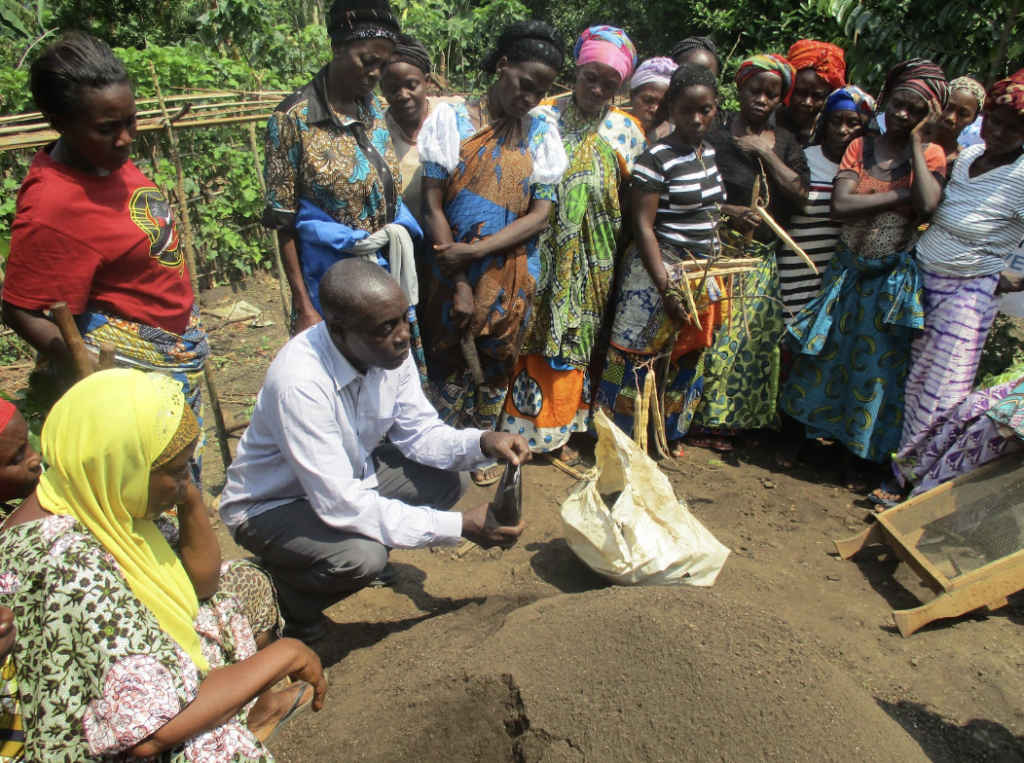
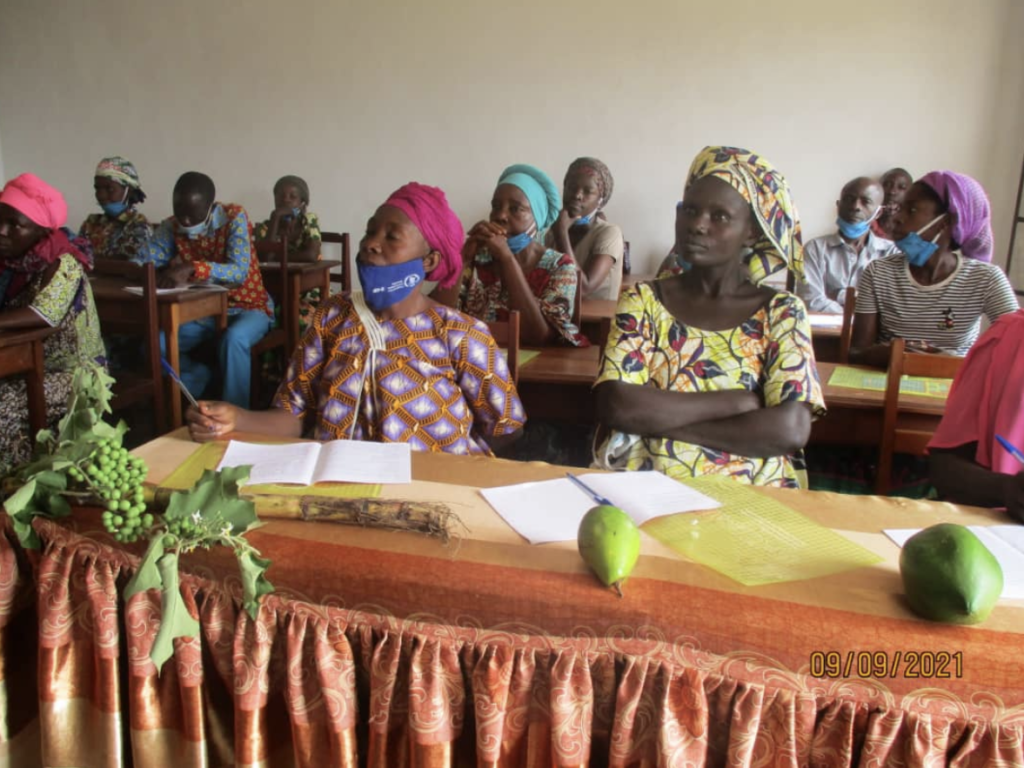
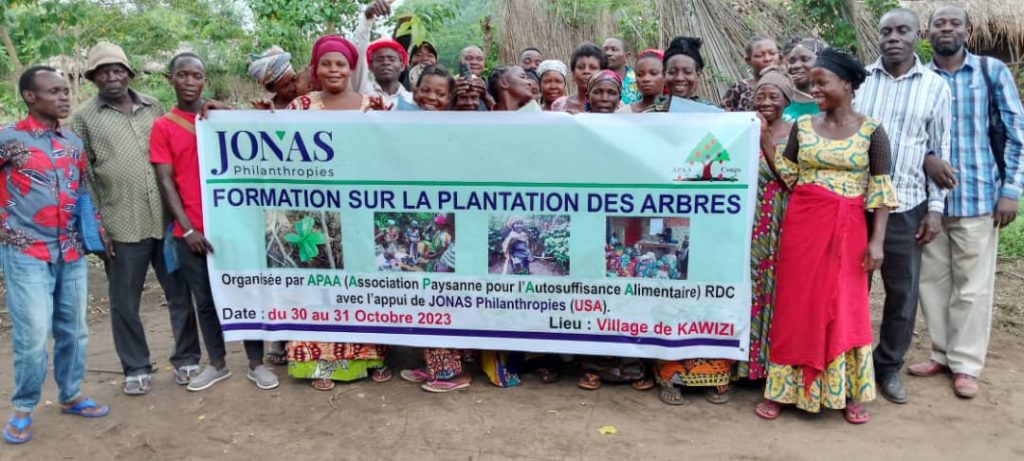
The Phillipines, Tribes and Nature’s Defenders, 2025
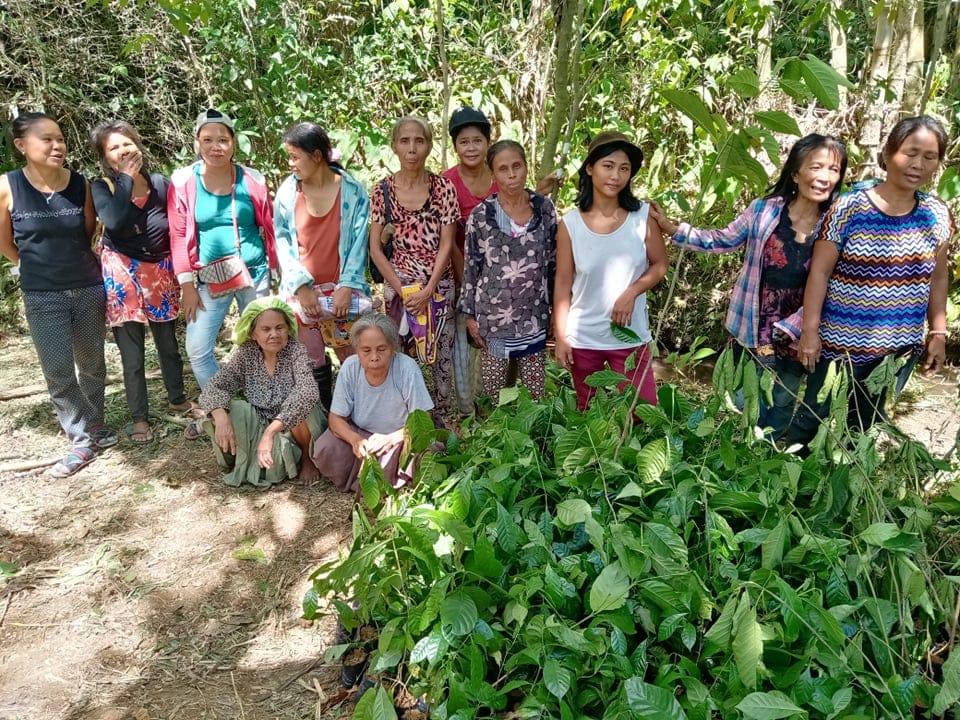
Indigenous community members plant their traditional territory with native trees and grow shade coffee.
Why Regeneration?
According to the UN World Food Program, the World is in an unprecedented Global Food Crisis. The health of 700 million people will suffer from hunger this year.
That means that without your support, 1 in 3 children will suffer a lifetime of mental and physical deficits from easily preventable malnutrition diseases in the places where we work.
With your help, we can can turn the tide on the devastating impacts children experience from chronic hunger. We fight hunger differently. We support local women farmers in growing trees that can transform their lives while restoring degraded lands –which is also one of the most effective ways of fighting climate change and preventing famine at its root.
We need your help to grow our impact and nourish more children this year!
100% of your gift helps end hunger.
[/vc_column_text]DONATE
No matter how much you give, every cent funds regenerative farming projects that empower women around the world so they can feed the hungry.
Every $50 gift helps us provide 50 families with a life-saving tree that will grow hundreds of pounds of food every year, and the tools and training women need to help end hunger and climb out of poverty permanently.
Our Work
We fight hunger differently.
We know land degradation and famine are closely linked. That’s why we work to deliver a permanent, locally-led solution to hunger. To do this, we empower the women who produce 80% of the food eaten by the rural poor in places like Africa, Asia and Latin America. Our solution works, because it solves the root causes of the hunger crisis -land degradation and poverty. We work at the source of the problem. We give woman farmers easy access to the training, tools, and food processing equipment they need along with training on how to restore their farmland starting at the kitchen door, so they can feed their children and community nutritious, resilient superfoods, not just today, but for the long term. Our methods are based in our deep research into the nutritional quality of resilient tree crops, and we match those with the local climate, context and prevalent malnutrition maladies that the trees can resolve. We don’t know any other organization doing this.
Our Impact:
- Founded in 2021, we have 15 Regeneration Hubs underway in 10 countries that are working hard to break the cycle of gender oppression, climate impacts, poverty, land degradation, and the global hunger crisis.
- These training centers and regenerative businesses are helping over 65,000 women farmers, their children, and their communities build climate-resilient farms that heal degraded lands so they can grow more food
- The women we help are now planting hundreds of thousands of life-saving nutritious trees that help protect biodiversity by feeding and sheltering wildlife, cooling the Earth, and restoring rains. The trees will soon provide their villages with healthy nutritious food, and better incomes for these women for decades to come
- The trees will mature, drawing carbon out of the atmosphere every year, helping everyone by working to heal our climate.
Meet Cheusi:
- Cheusi, one of the woman farmer’s our partner in the Democratic Republic of Congo has helped, once faced hunger, violence, and climate challenges with no one to turn to for help in her darkest hours.
- Through our support to APAA’s leader Aaron Karumba, his center’s training programs provided Cheusi with confidence, seeds, and support as she learned how to revitalize her depleted land and now she is able to feed her young family. She is a leader training the other women in her village when once she was a downtrodden outcast with little hope for a better future.
- Cheusi’s story is proof that together, we can make a difference that improves women’s lives and provides a beacon of hope where otherwise there is none.Donate
- Every dollar counts! A small donation provides a life-saving tree and empowers a woman farmer.
- Donate securely today and help end world hunger.
- Consider a monthly gift for continuous impact.
Join the Movement
Share our story, connect to us on
- Facebook,
- Instagram,
- Youtube and
- LinkedIn to inspire others to join us in the fight against hunger.
Give with Confidence
Trust & Transparency
All of our operational expenses are funded by a private community of foundations and individual donors so you can trust that 100% of your donation goes directly to programs that help women fight hunger the right way. But we don’t stop there.
- We are a US-based 501c3 non-profit dedicated to ending hunger.
- See our audited financials and meet our dedicated team.
DONATE Every $1 helps. Please help us transform a hungry child’s life today.
Together, we can create a world where no child goes to bed hungry.
From our commitment to working by supporting local partners to our use of innovation, to the environmental outcomes of our ecosystem regeneration, “sustainable” is never good enough for us, our projects go beyond sustaining to restoring because that’s what the world needs now. We’re committed to transparency and measuring our impact, and these supporting donors agree.
Why do we build Regeneration Hubs designed to empower women farmers?
See Our Hub Partners At Work
Subscribe to our Youtube channel to learn more about regenerative agriculture.
Watch videos from the World’s leading regeneration experts and learn more about the great work of our local Hub partners.
Where We Work
Explore the many ways you can help the women who feed the world!
CAPACITY BUILDING PROGRAMS
We provide several Capacity Building Programs that help women farmers learn how to switch to regenerative agriculture to protect and replant tropical rainforests. We provide powerful incentives that help isolated women meet their family’s basic needs. We partner with local organizations that help women achieve their goals. Our programs support women with the resources they can’t otherwise access. They use them to grow healthy, nutritious, climate-resilient food and climb out of poverty and food insecurity once and for all.
GLOBAL IMPACT
We support women organizations that worked with over 65,000 women farmers across 10 countries including 3 locations in the U.S. Together we are planting millions of life-saving trees that will feed nutritious resilient foods to their communities for decades to come. We have a waiting list of leaders and women in many other countries who want our help. To grow our impact we need your support.
PARTNERSHIPS FOR SCALE
Corporate partners, Foundations, and global NGOs are key to scaling our work more quickly. Our approach can help companies that source their raw materials from farmers, meet growing consumer demand for climate action and justice. We offer companies a solution to building the resilience of their supply sources while quickly scaling up their access to regeneratively grown and ethically sourced ingredients. We provide consulting services to help Foundations and Companies understand how to utilize the power of regenerative agriculture to support women farmers. We also custom design nutritious tree-planting programs to help companies and individuals mitigate their climate impacts.
The Regeneration Hub model provides a holistic approach to landscape restoration and climate-resilient poverty alleviation that provides food and nutrition security for the World’s most vulnerable. We pair resilient design, including permaculture, syntropic agroforestry and water harvesting earth works with women’s permagardens, homescale food and nutrition security design at the homestead, as the basis of our holistic approach to building women’s climate adaptation. Our Hubs are designed to restore degraded areas at the home, community and landscape scale for humans and wildlife. Learn more about the details below.
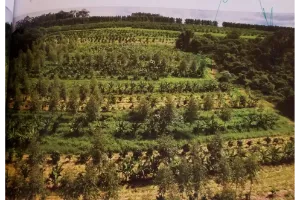
Resilience design and Agroforestry instead of monocropping annuals
Hubs promote ecosystem restoration. The first zone of tree planting is centered around a multi-layered regenerative agroforestry system designed to meet the family’s food and nutrition security, as well as to produce high-value seedlings for large-scale reforestation of tree crops that will generate new income through diversification of markets available once crops go through value-added processing in the Hub micro-factory. Hubs generate greater wealth by reducing crop loss too. This combination provides long-term incentivizes for local people who must agree to protect forests and wildlife. The regenerative agriculture transition allows for a wider array of products which varies by region and can include tree nuts for butters and oils, perennial staple crops, coconuts, spices, pineapple, vanilla, dragon fruit, banana, shade-grown coffee and cacao, rubber, essential oils, medicinals, superfoods, bamboo, & perennial biofuels.

Innovative food processing micro-factory
The factories are designed by our team to meet the needs of families based on the specific location. They are made with off-the-shelf components that fit into easily shipped containers that can reach remote forest locations. A micro-factory can start out small, serving 40 families in a pilot project, and then can grow to serve over 6,000 families. The system design is adaptable and can be converted to process a wide array of local crops to generate resilient incomes and adapt to changing markets and climatic conditions.
Multiple valuable co-benefits of Hubs incentivizes behavior change
Regeneration Hubs were designed to incentivize behavior change by producing many valuable items needed by families living in rural villages. Communities decide what they want the factory to co-generate. It can be designed to produce perennial tree crop biofuels, which can be used to provide green electricity. This can help connect communities to the internet for remote learning and virtual health clinics or to power clean cookstoves and bio-diesel or ethanol-powered transport. Hubs can produce clean drinking water, livestock feed, and essential crop amendments that lower farmers’ costs and increase profits, like biochar, natural plant-growth accelerators, microbial inoculants, and organic fertilizers. The governance of a Hub is can be done by the local community through cooperative structures, and profits are meant to stay in the community to be reinvested in further restoring degraded lands, protecting forests, and improving the quality of life for everyone.
Regenerative Farms, Inc. is a small, nimble, woman-founded and led, U.S. based 501c3.
We work globally through a collective of local partner organizations all dedicated to helping restore the planet while empowering women farmers.
We achieve our mission by helping women farmers gain the tools and training they need to adapt to the rise in severe weather, which allows them to improve the health of their families, by ending hunger and malnutrition where it starts. With your support rural women can grow climate resilient healthy local food, cultivating a more prosperous future by restoring the Earth today.
We help women plant resilient forests full of nutritious superfood tree crops selected to better withstand extreme weather and that offer them year-round easy access to the critical nutrients essential for good health. 1 in 3 children and pregnant women in many parts of the world suffer from malnutrition. Help us change that.
Our Impact:
- Founded in 2021, we have 15 Regeneration Hubs underway in 10 countries that are working hard to break the cycle of gender oppression, climate impacts, poverty, land degradation, and the global hunger crisis.
- These training centers and regenerative businesses are helping over 65,000 women farmers, their children, and their communities build climate-resilient farms that heal degraded lands so they can grow more food
- The women we help are now planting hundreds of thousands of life-saving nutritious trees that help protect biodiversity by feeding and sheltering wildlife, cooling the Earth, and restoring rains. The trees will soon provide their villages with healthy nutritious food, and better incomes for these women for decades to come
- The trees will mature, drawing carbon out of the atmosphere every year, helping everyone by working to heal our climate.
Meet Cheusi:
- Cheusi, one of the woman farmer’s our partner in the Democratic Republic of Congo has helped, once faced hunger, violence, and climate challenges with no one to turn to for help in her darkest hours.
- Through our support to APAA’s leader Aaron Karumba, his center’s training programs provided Cheusi with confidence, seeds, and support as she learned how to revitalize her depleted land and now she is able to feed her young family. She is a leader training the other women in her village when once she was a downtrodden outcast with little hope for a better future.
- Cheusi’s story is proof that together, we can make a difference that improves women’s lives and provides a beacon of hope where otherwise there is none.Donate
- Every dollar counts! A small donation provides a life-saving tree and empowers a woman farmer.
- Donate securely today and help end world hunger.
- Consider a monthly gift for continuous impact.
Join the Movement
Share our story, connect to us on
- Facebook,
- Instagram,
- Youtube and
- LinkedIn to inspire others to join us in the fight against hunger.
Give with Confidence
Trust & Transparency
All of our operational expenses are funded by a private community of foundations and individual donors so you can trust that 100% of your donation goes directly to programs that help women fight hunger the right way. But we don’t stop there.
- We are a US-based 501c3 non-profit dedicated to ending hunger.
- See our audited financials and meet our dedicated team.
DONATE Every $1 helps. Please help us transform a hungry child’s life today.
Together, we can create a world where no child goes to bed hungry.
From our commitment to working by supporting local partners to our use of innovation, to the environmental outcomes of our ecosystem regeneration, “sustainable” is never good enough for us, our projects go beyond sustaining to restoring because that’s what the world needs now. We’re committed to transparency and measuring our impact, and these supporting donors agree.
Why do we build Regeneration Hubs designed to empower women farmers?
See Our Hub Partners At Work
Subscribe to our Youtube channel to learn more about regenerative agriculture.
Watch videos from the World’s leading regeneration experts and learn more about the great work of our local Hub partners.
Where We Work
Explore the many ways you can help the women who feed the world!
CAPACITY BUILDING PROGRAMS
We provide several Capacity Building Programs that help women farmers learn how to switch to regenerative agriculture to protect and replant tropical rainforests. We provide powerful incentives that help isolated women meet their family’s basic needs. We partner with local organizations that help women achieve their goals. Our programs support women with the resources they can’t otherwise access. They use them to grow healthy, nutritious, climate-resilient food and climb out of poverty and food insecurity once and for all.
GLOBAL IMPACT
We support women organizations that worked with over 65,000 women farmers across 10 countries including 3 locations in the U.S. Together we are planting millions of life-saving trees that will feed nutritious resilient foods to their communities for decades to come. We have a waiting list of leaders and women in many other countries who want our help. To grow our impact we need your support.
PARTNERSHIPS FOR SCALE
Corporate partners, Foundations, and global NGOs are key to scaling our work more quickly. Our approach can help companies that source their raw materials from farmers, meet growing consumer demand for climate action and justice. We offer companies a solution to building the resilience of their supply sources while quickly scaling up their access to regeneratively grown and ethically sourced ingredients. We provide consulting services to help Foundations and Companies understand how to utilize the power of regenerative agriculture to support women farmers. We also custom design nutritious tree-planting programs to help companies and individuals mitigate their climate impacts.
The Regeneration Hub model provides a holistic approach to landscape restoration and climate-resilient poverty alleviation that provides food and nutrition security for the World’s most vulnerable. We pair resilient design, including permaculture, syntropic agroforestry and water harvesting earth works with women’s permagardens, homescale food and nutrition security design at the homestead, as the basis of our holistic approach to building women’s climate adaptation. Our Hubs are designed to restore degraded areas at the home, community and landscape scale for humans and wildlife. Learn more about the details below.

Resilience design and Agroforestry instead of monocropping annuals
Hubs promote ecosystem restoration. The first zone of tree planting is centered around a multi-layered regenerative agroforestry system designed to meet the family’s food and nutrition security, as well as to produce high-value seedlings for large-scale reforestation of tree crops that will generate new income through diversification of markets available once crops go through value-added processing in the Hub micro-factory. Hubs generate greater wealth by reducing crop loss too. This combination provides long-term incentivizes for local people who must agree to protect forests and wildlife. The regenerative agriculture transition allows for a wider array of products which varies by region and can include tree nuts for butters and oils, perennial staple crops, coconuts, spices, pineapple, vanilla, dragon fruit, banana, shade-grown coffee and cacao, rubber, essential oils, medicinals, superfoods, bamboo, & perennial biofuels.

Innovative food processing micro-factory
The factories are designed by our team to meet the needs of families based on the specific location. They are made with off-the-shelf components that fit into easily shipped containers that can reach remote forest locations. A micro-factory can start out small, serving 40 families in a pilot project, and then can grow to serve over 6,000 families. The system design is adaptable and can be converted to process a wide array of local crops to generate resilient incomes and adapt to changing markets and climatic conditions.
Multiple valuable co-benefits of Hubs incentivizes behavior change
Regeneration Hubs were designed to incentivize behavior change by producing many valuable items needed by families living in rural villages. Communities decide what they want the factory to co-generate. It can be designed to produce perennial tree crop biofuels, which can be used to provide green electricity. This can help connect communities to the internet for remote learning and virtual health clinics or to power clean cookstoves and bio-diesel or ethanol-powered transport. Hubs can produce clean drinking water, livestock feed, and essential crop amendments that lower farmers’ costs and increase profits, like biochar, natural plant-growth accelerators, microbial inoculants, and organic fertilizers. The governance of a Hub is can be done by the local community through cooperative structures, and profits are meant to stay in the community to be reinvested in further restoring degraded lands, protecting forests, and improving the quality of life for everyone.
We achieve our mission by helping women farmers gain the tools and training they need to adapt to the rise in severe weather, which allows them to improve the health of their families, by ending hunger and malnutrition where it starts. With your support rural women can grow climate resilient healthy local food, cultivating a more prosperous future by restoring the Earth today.




